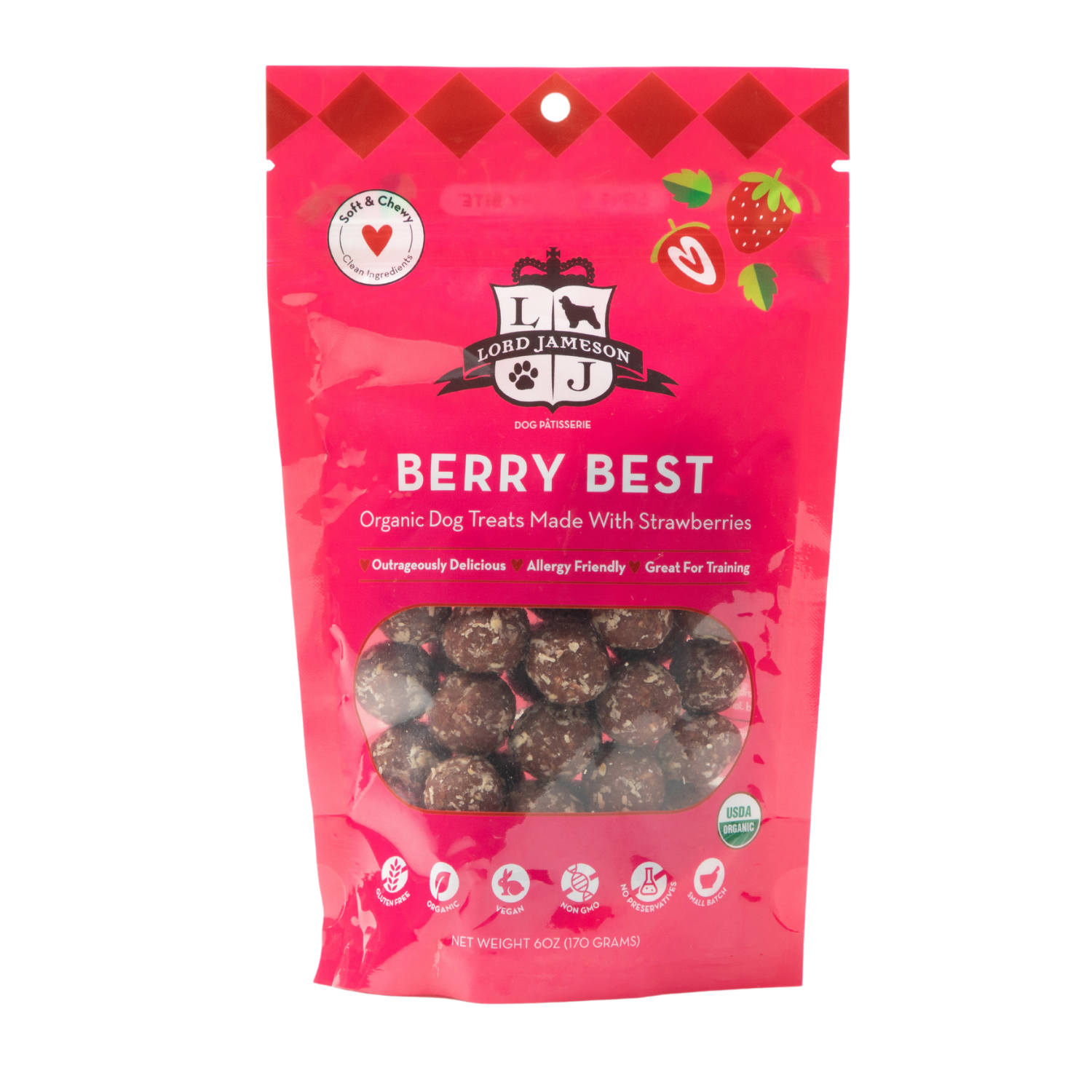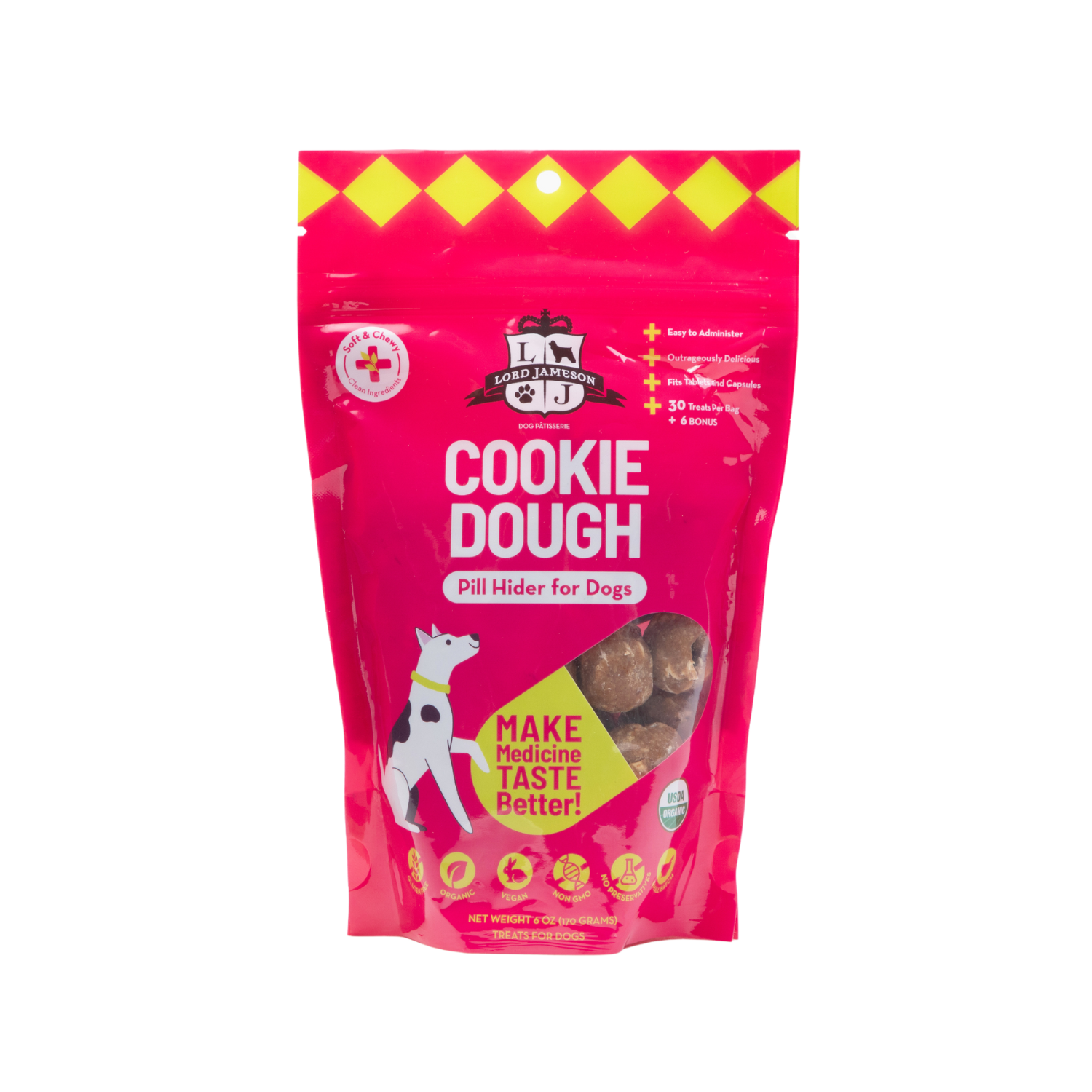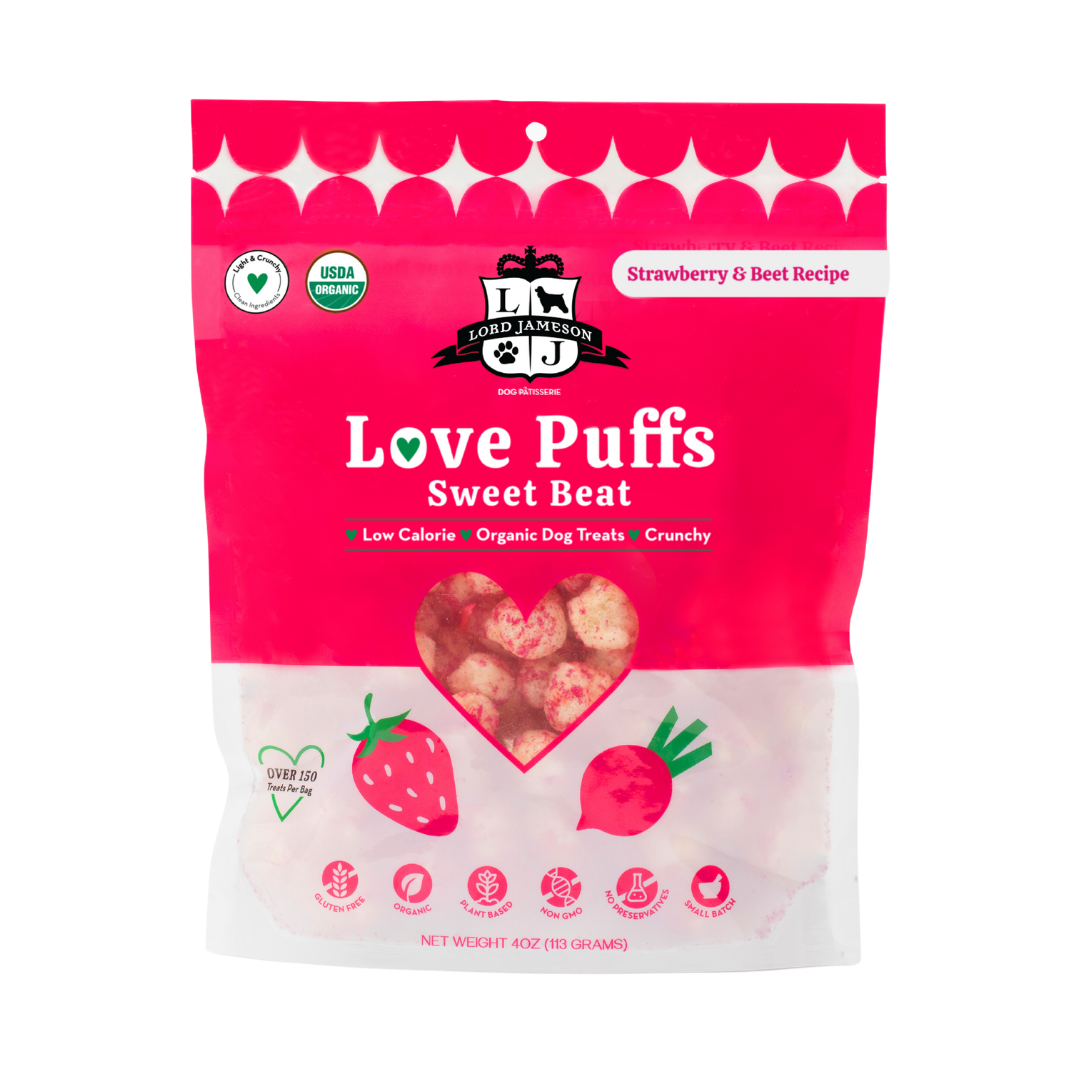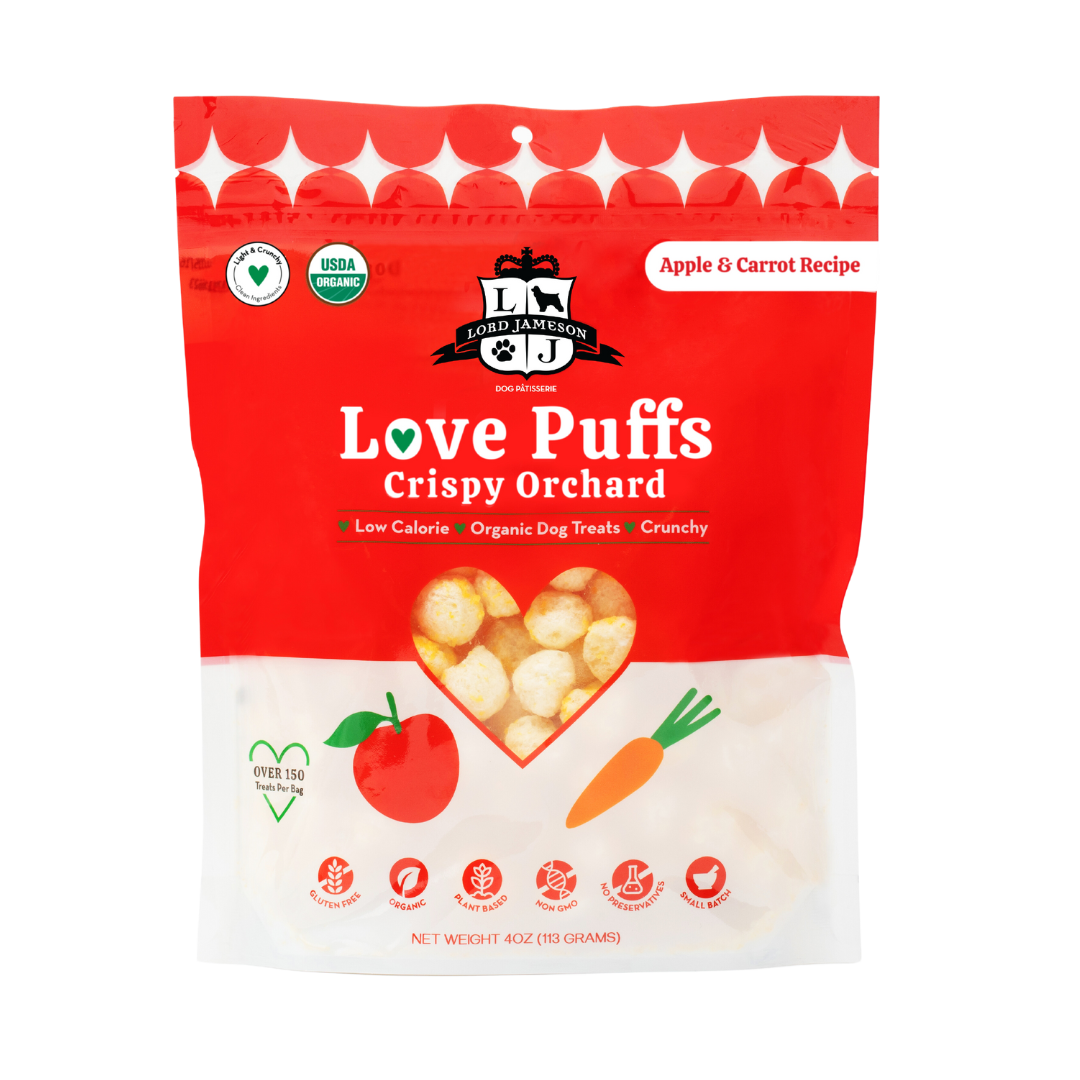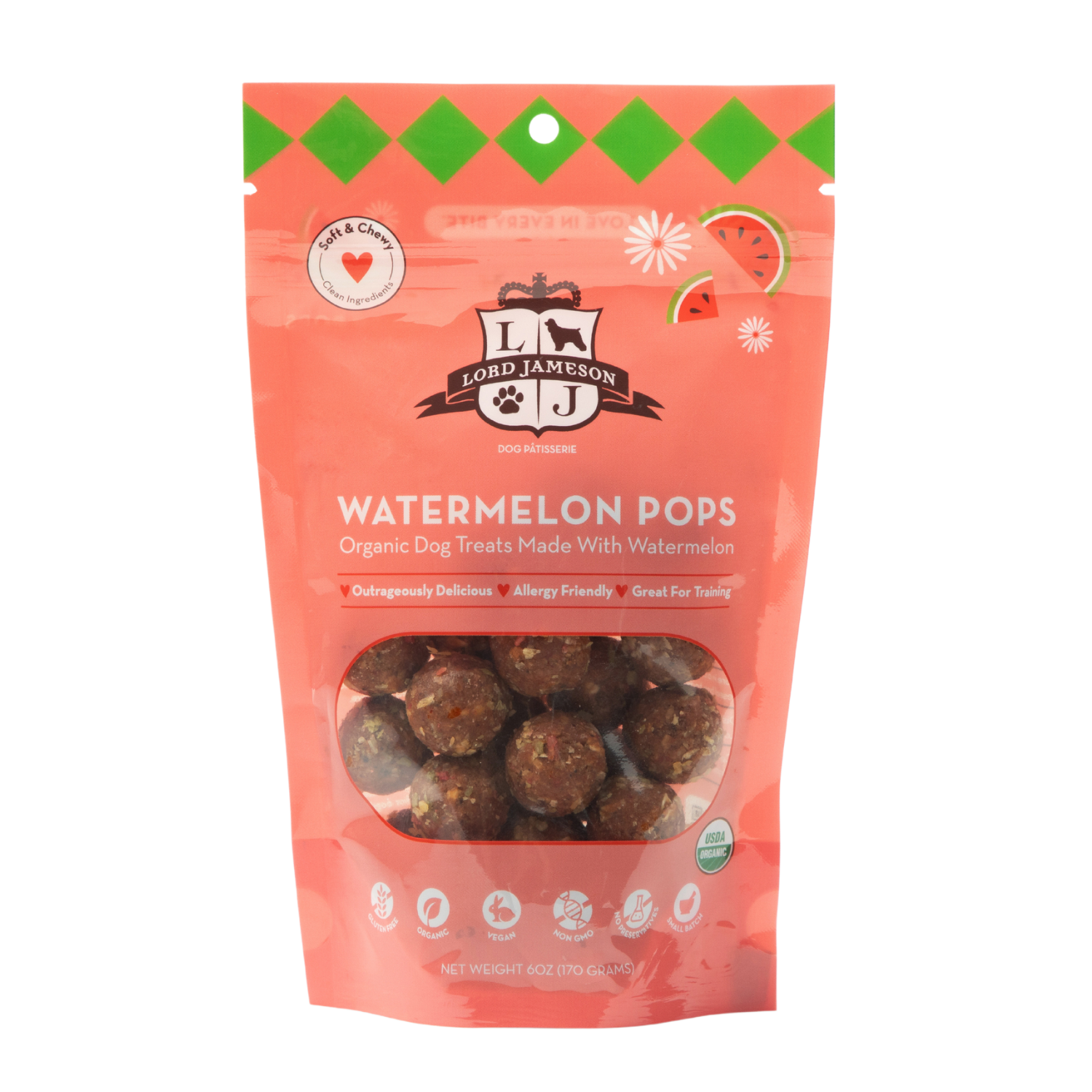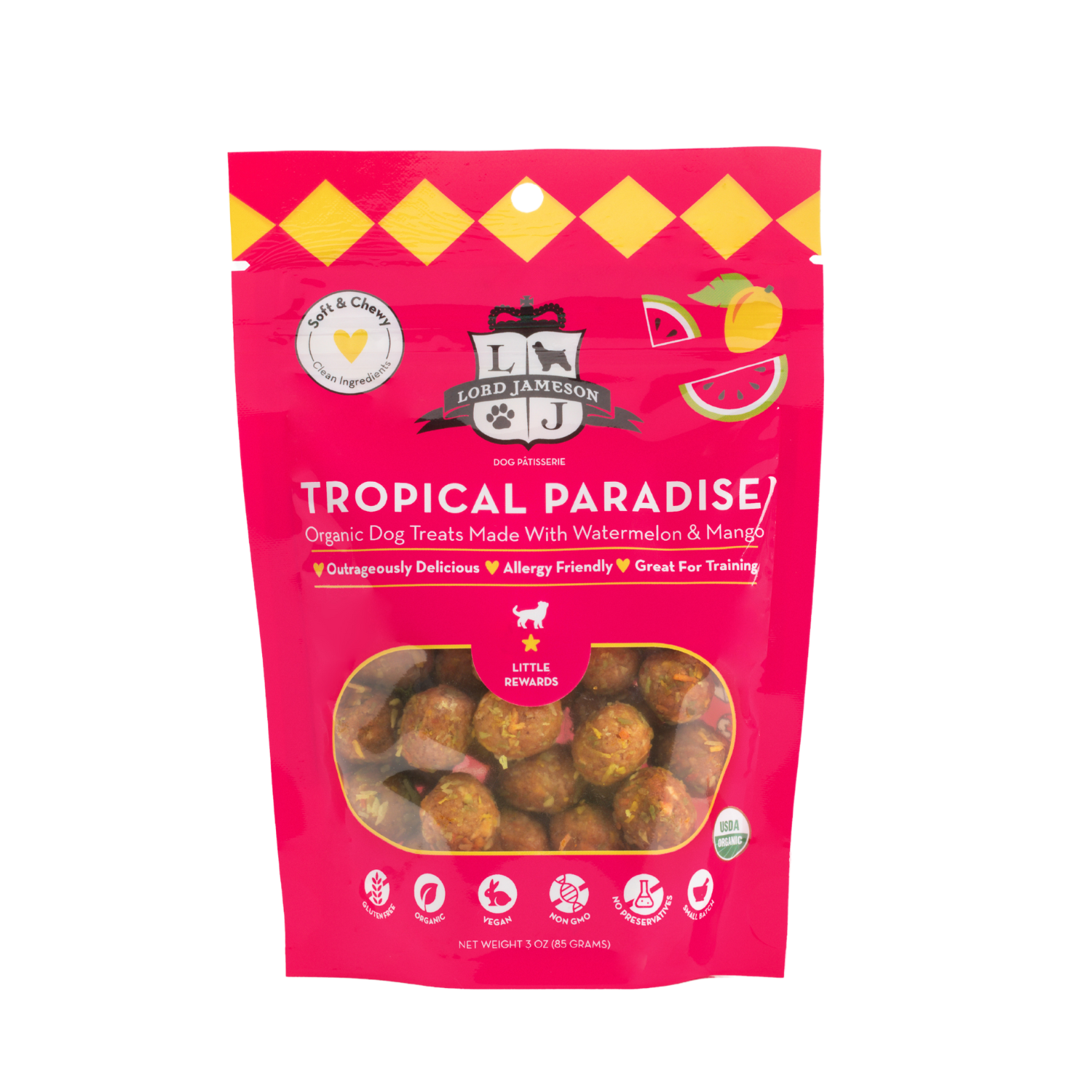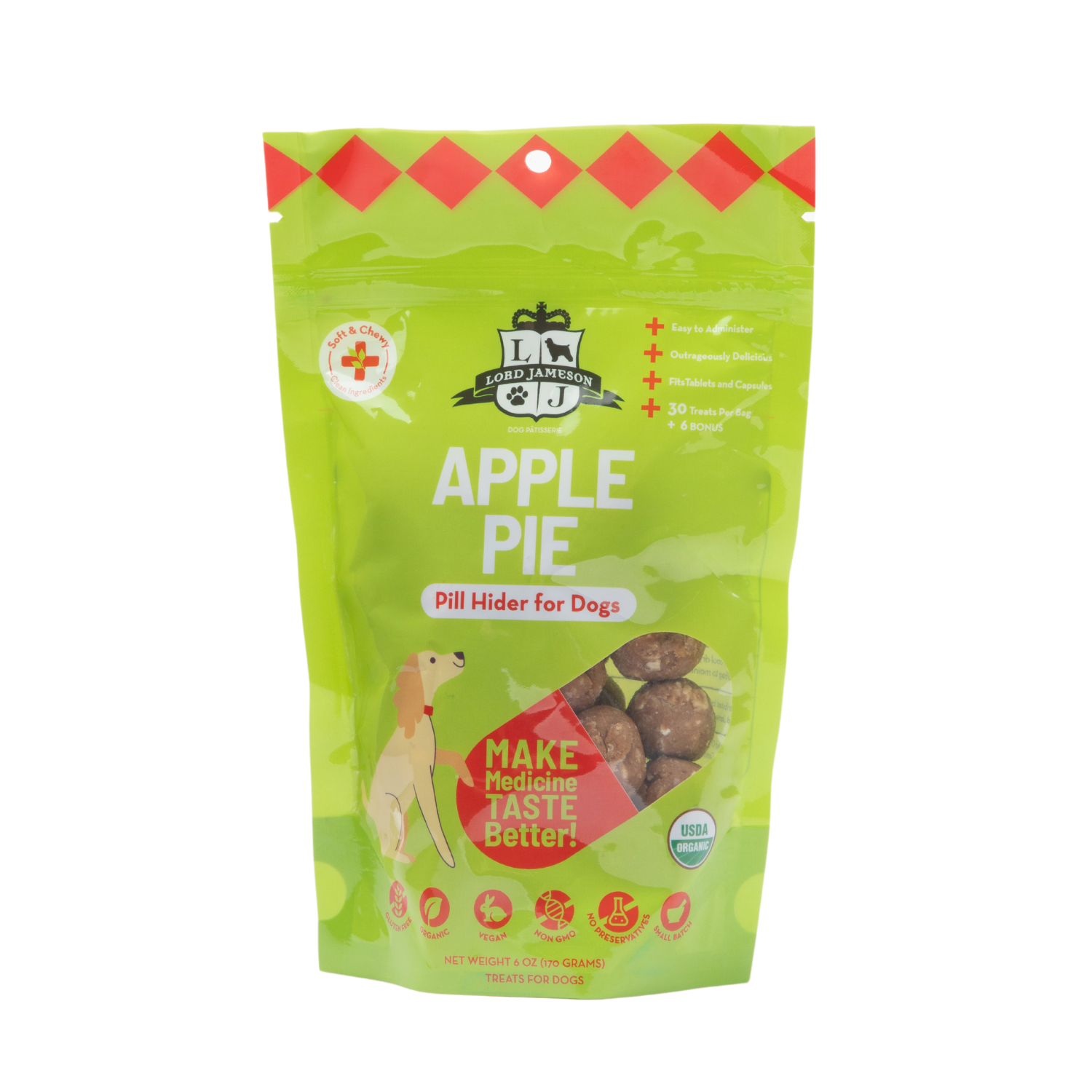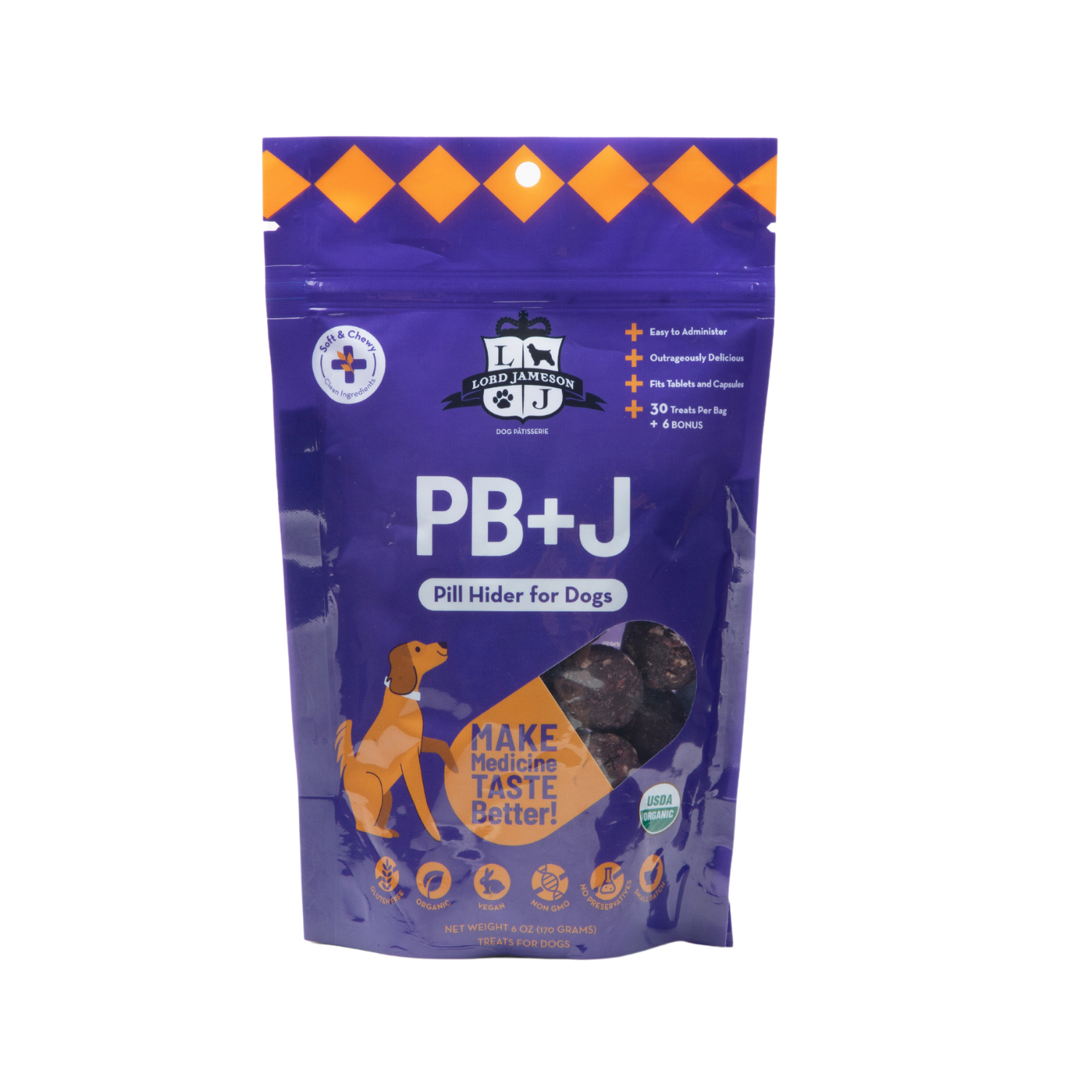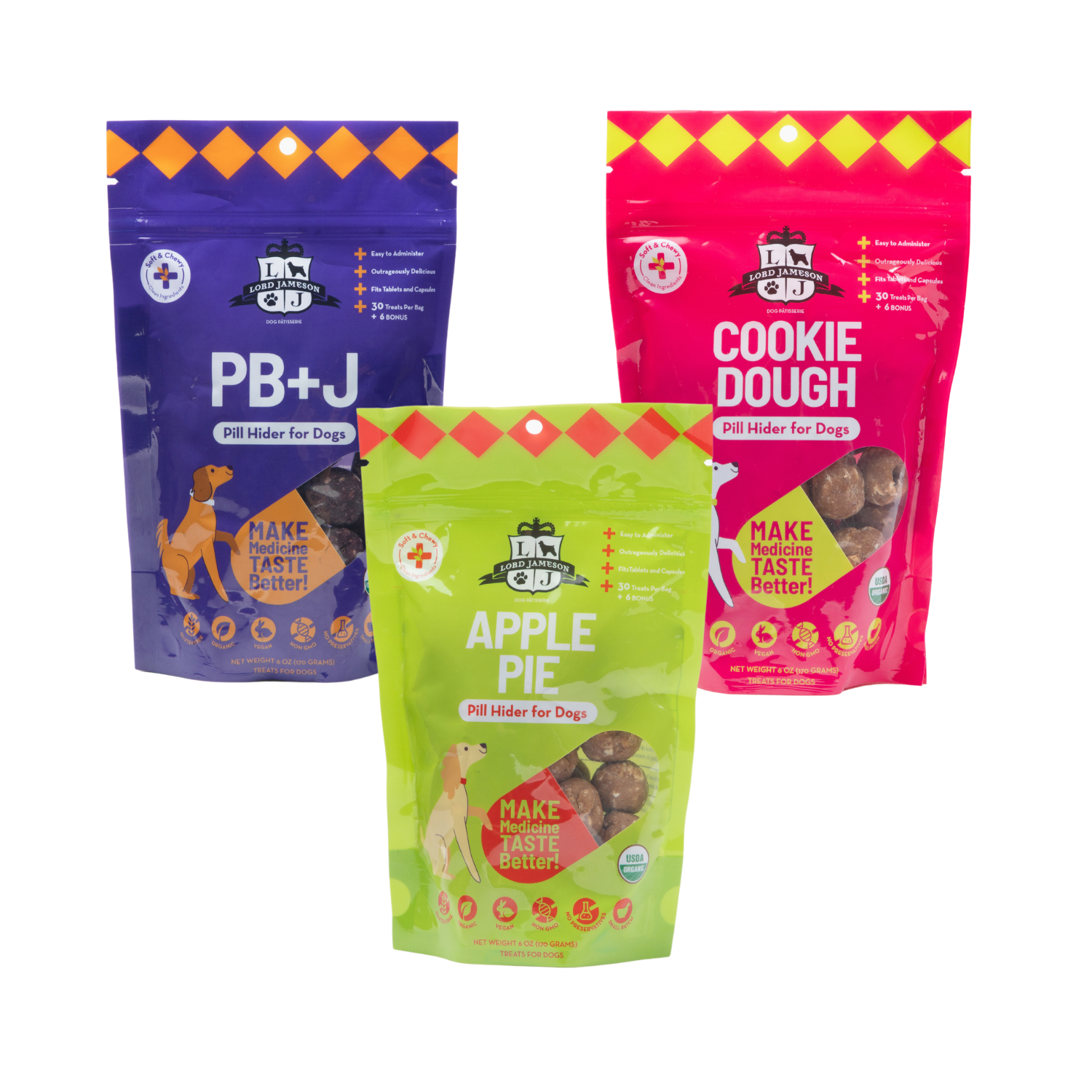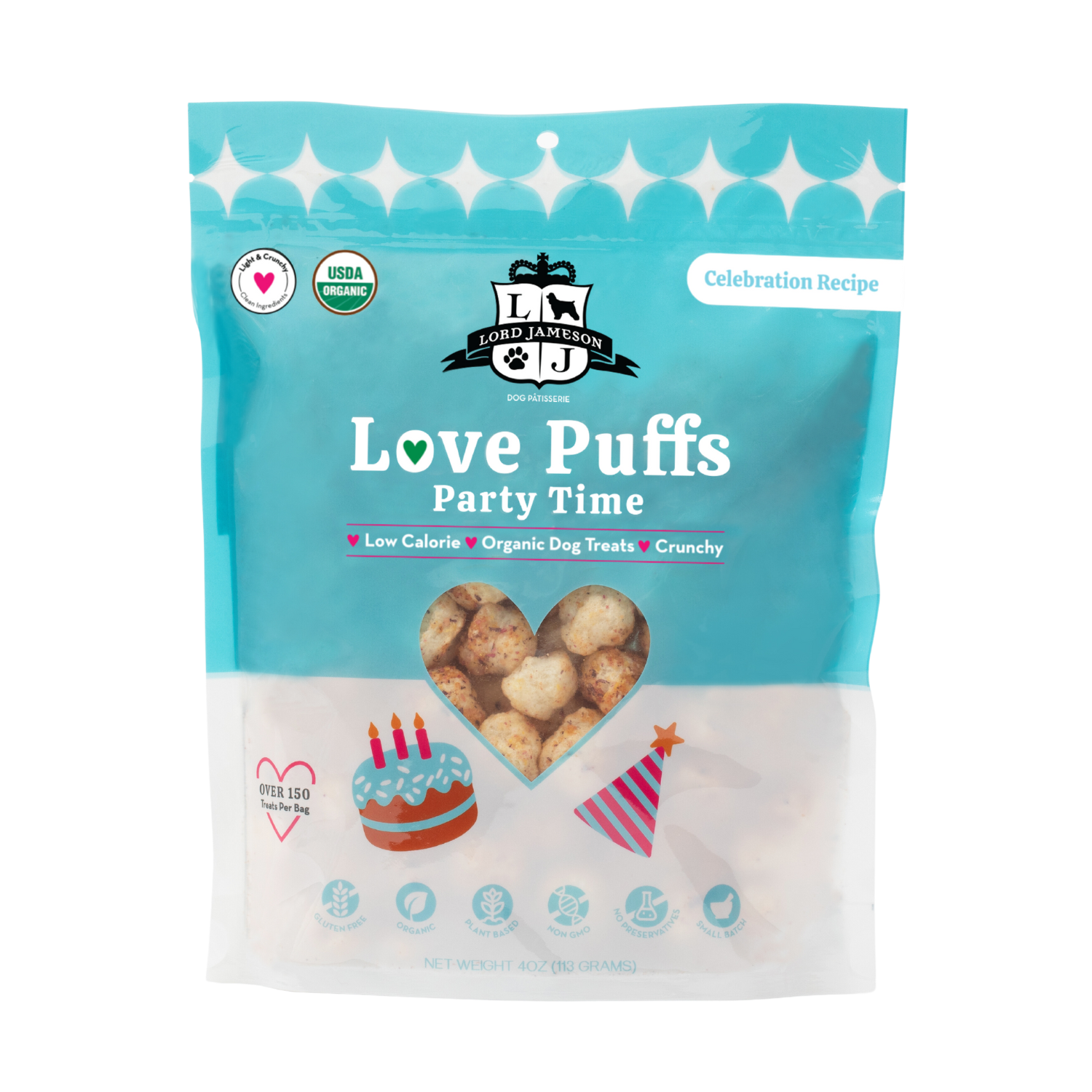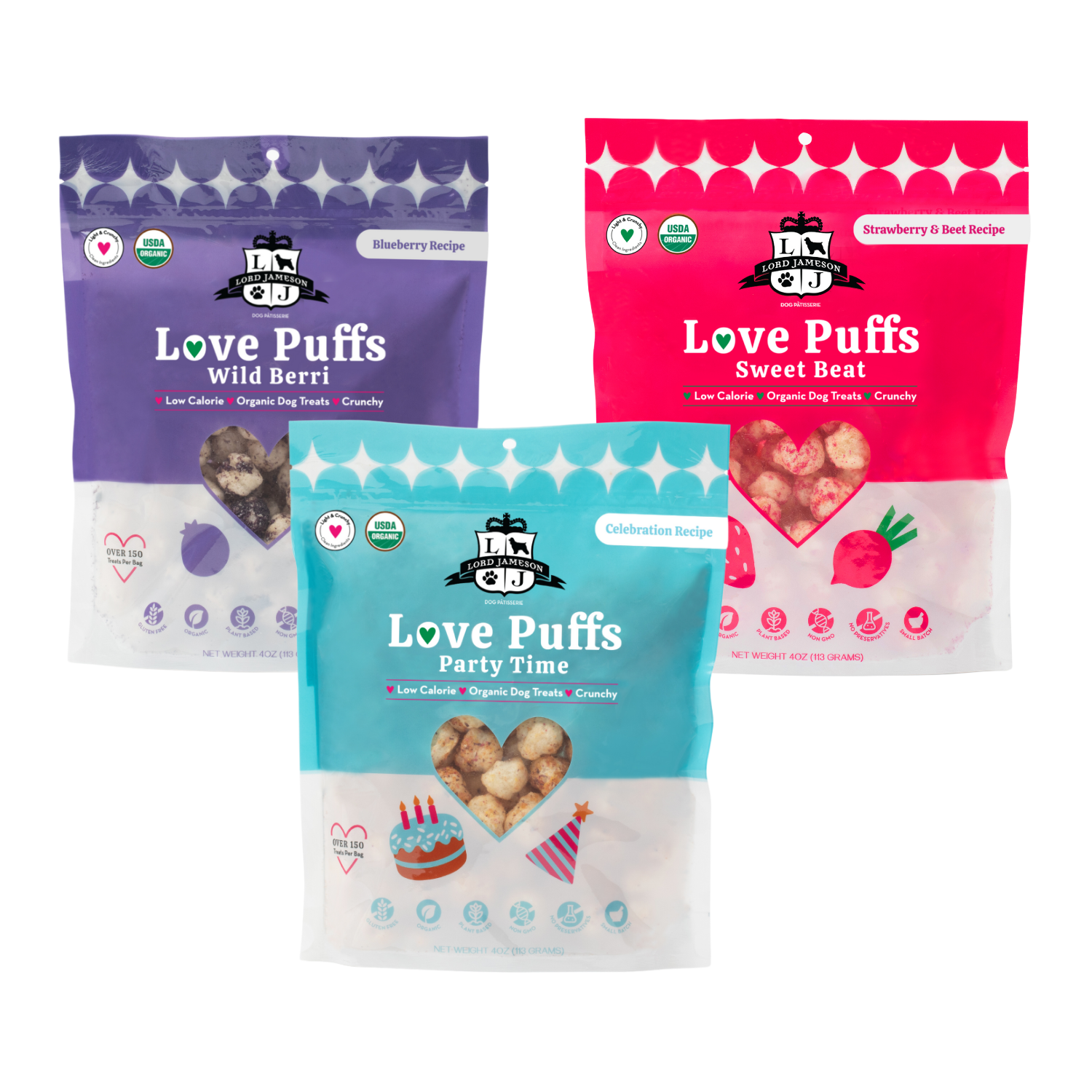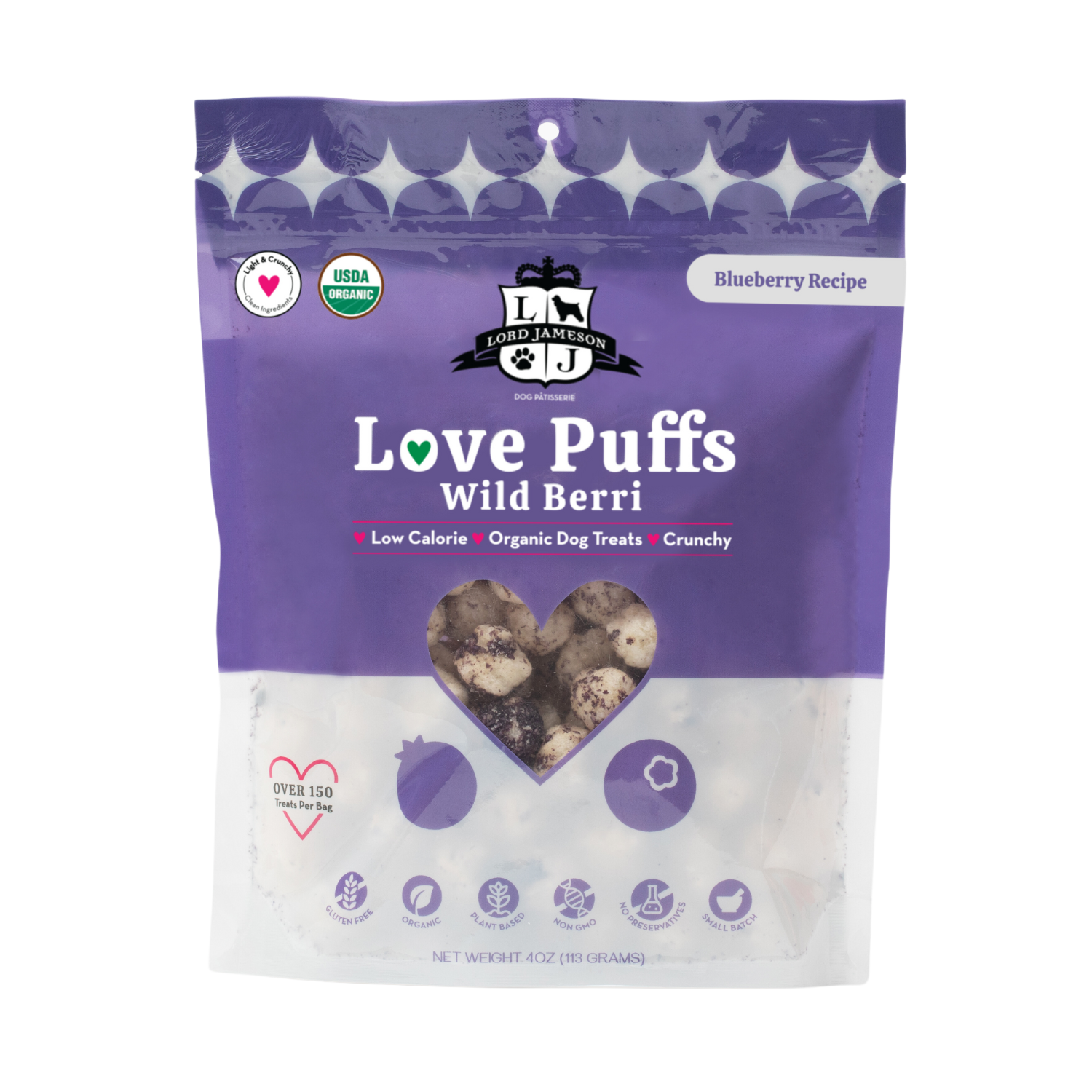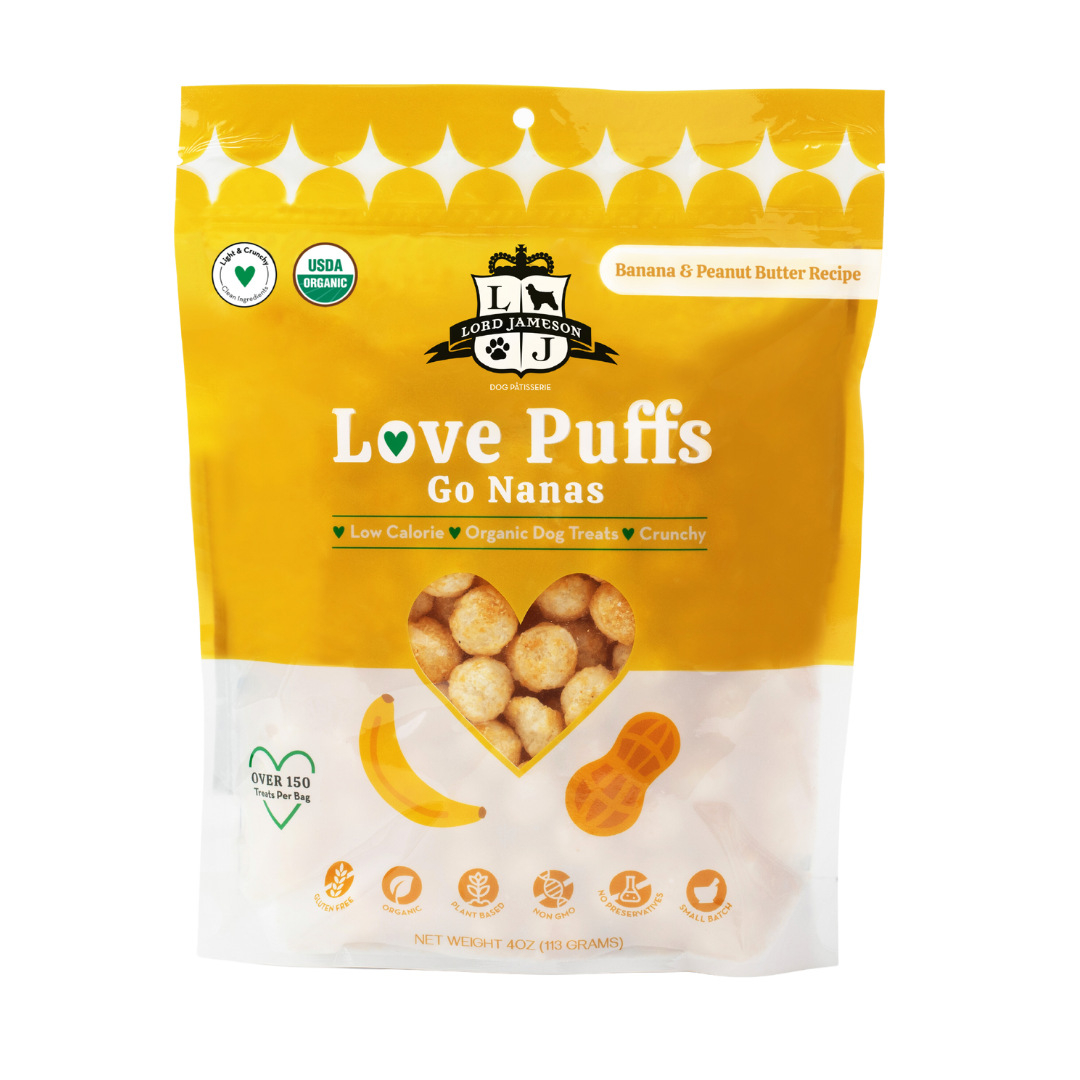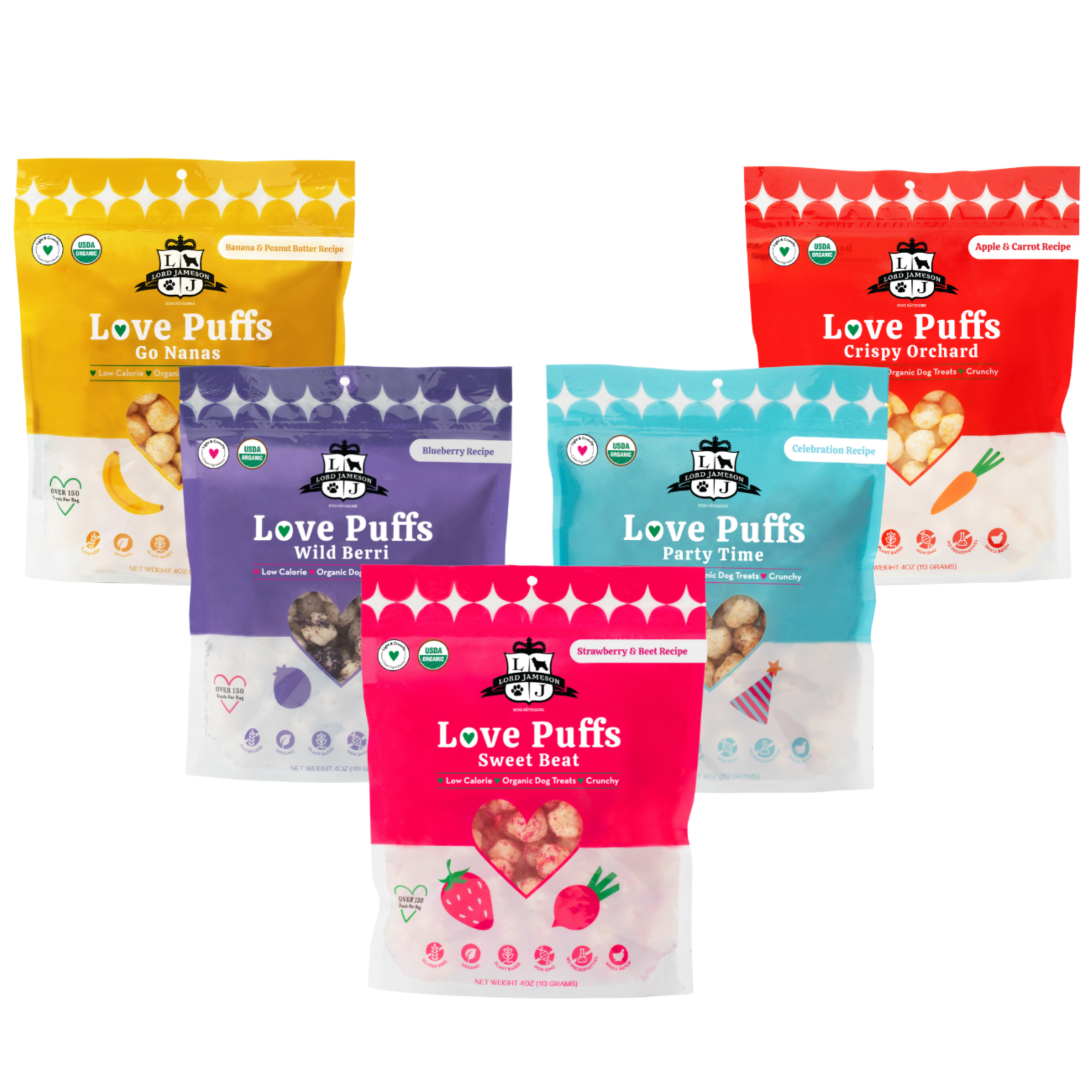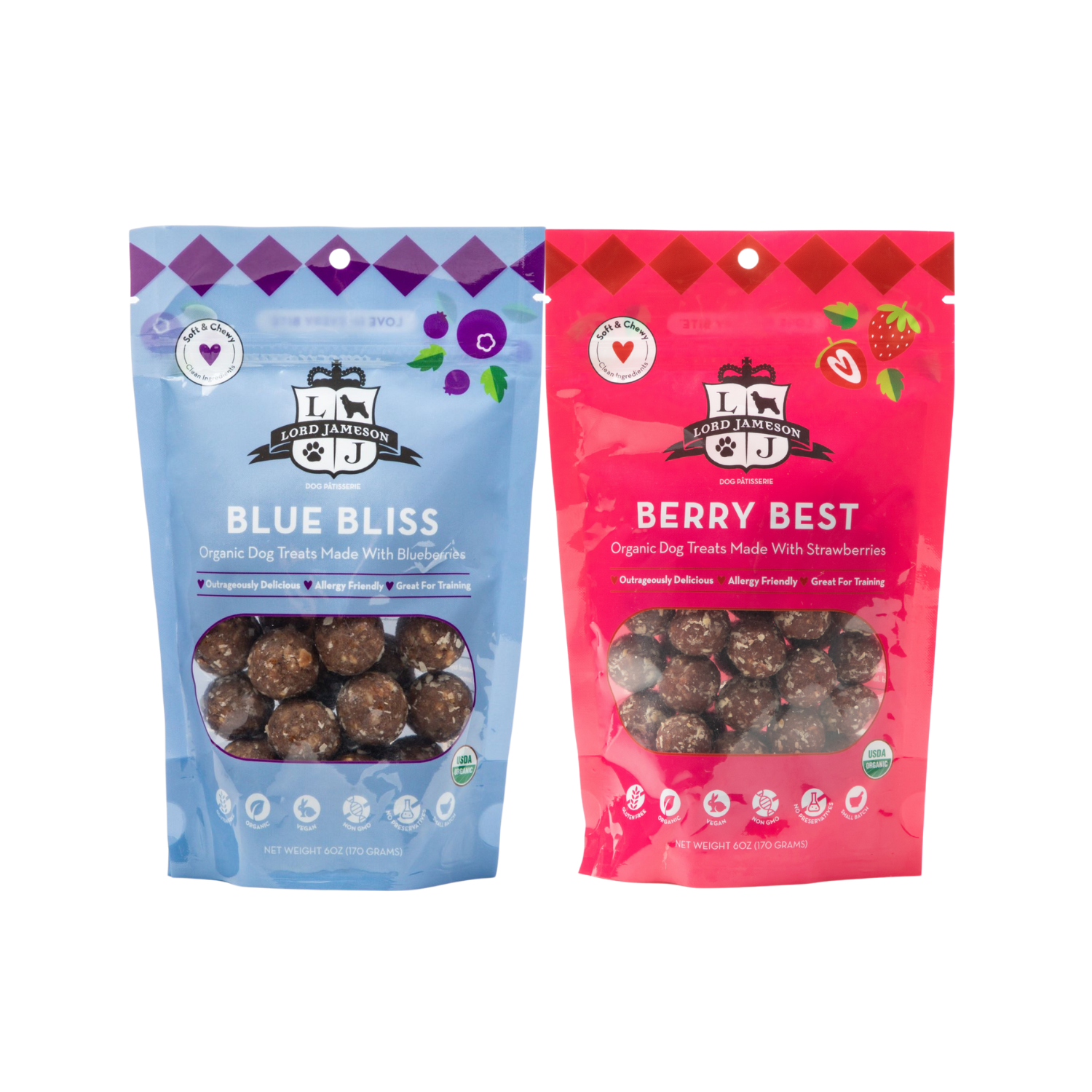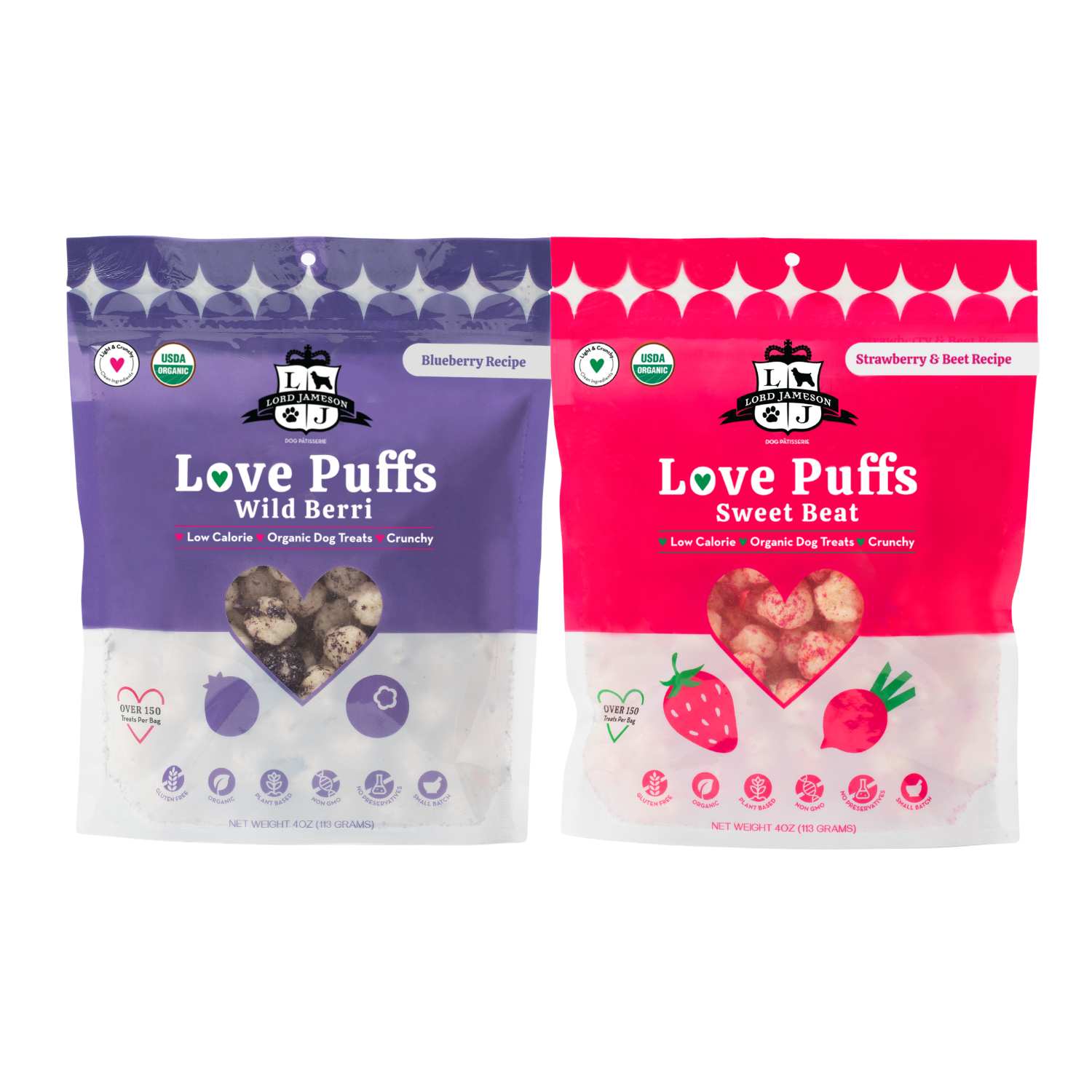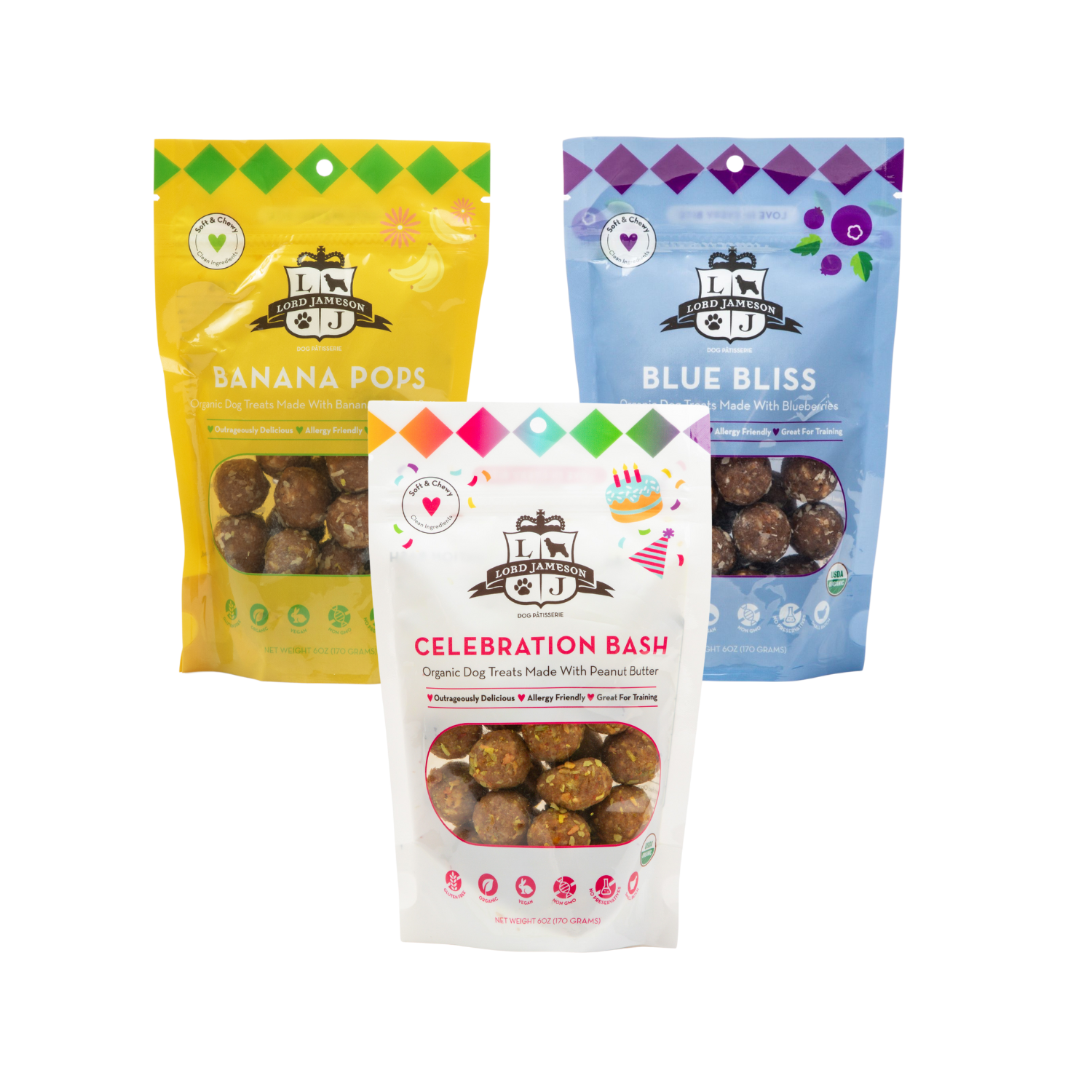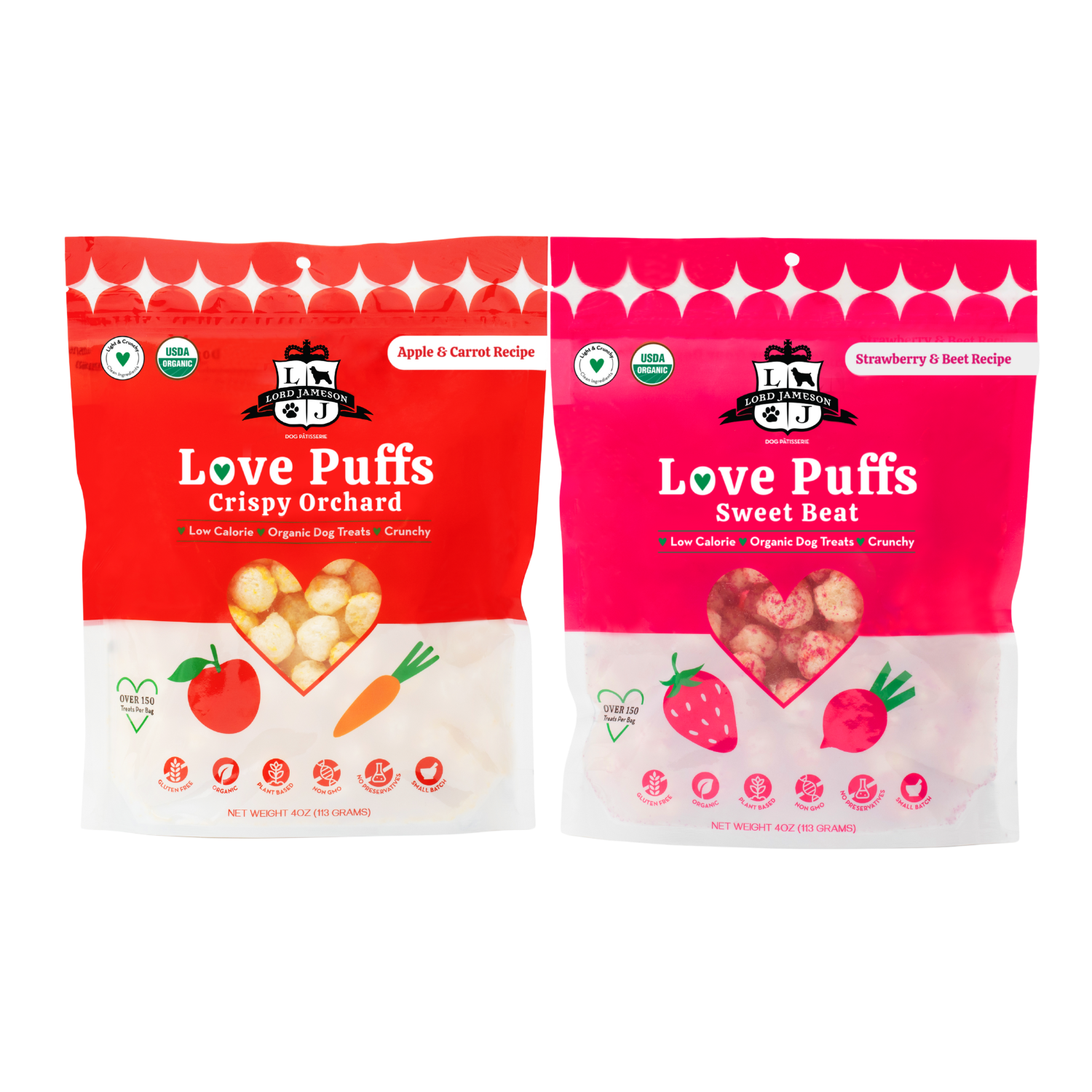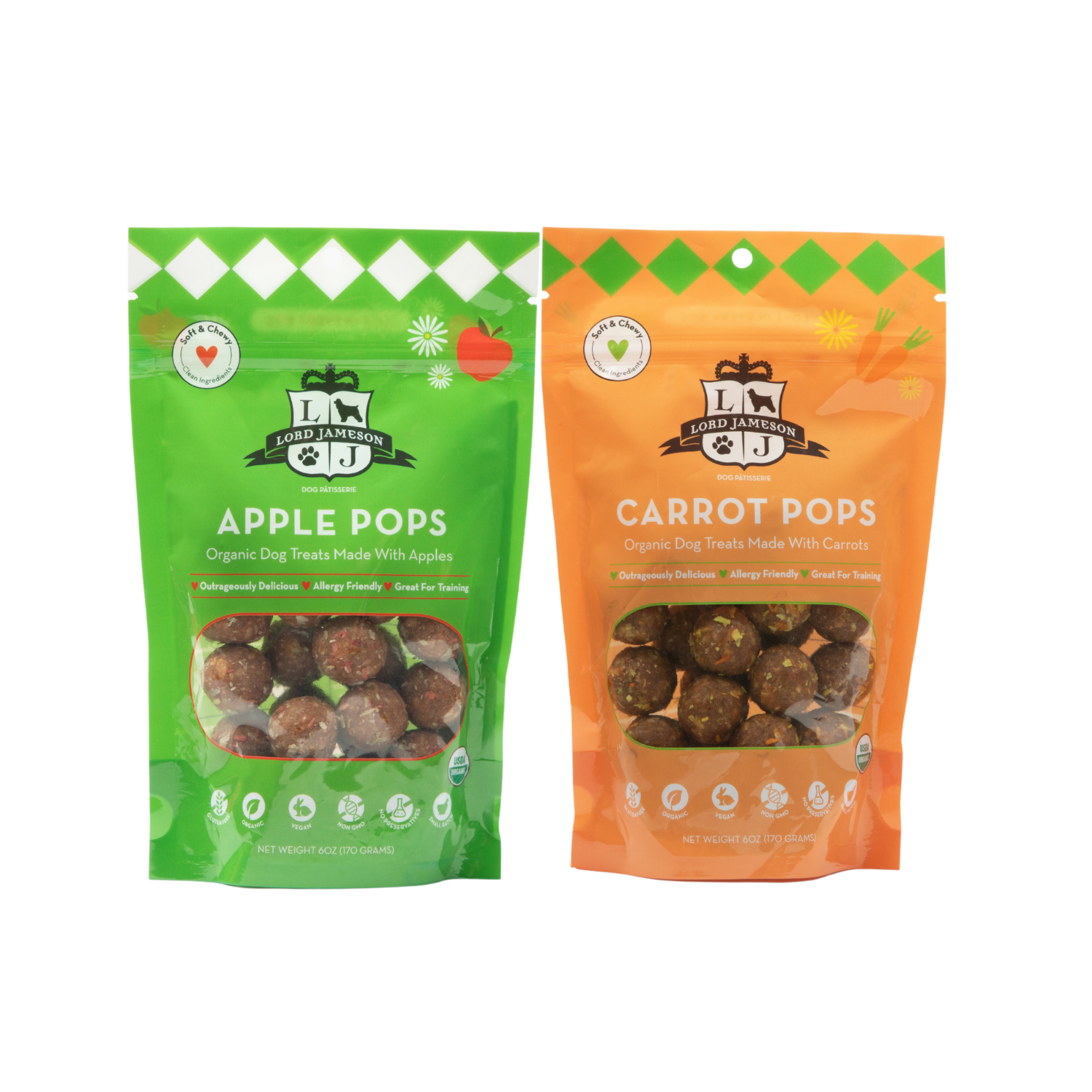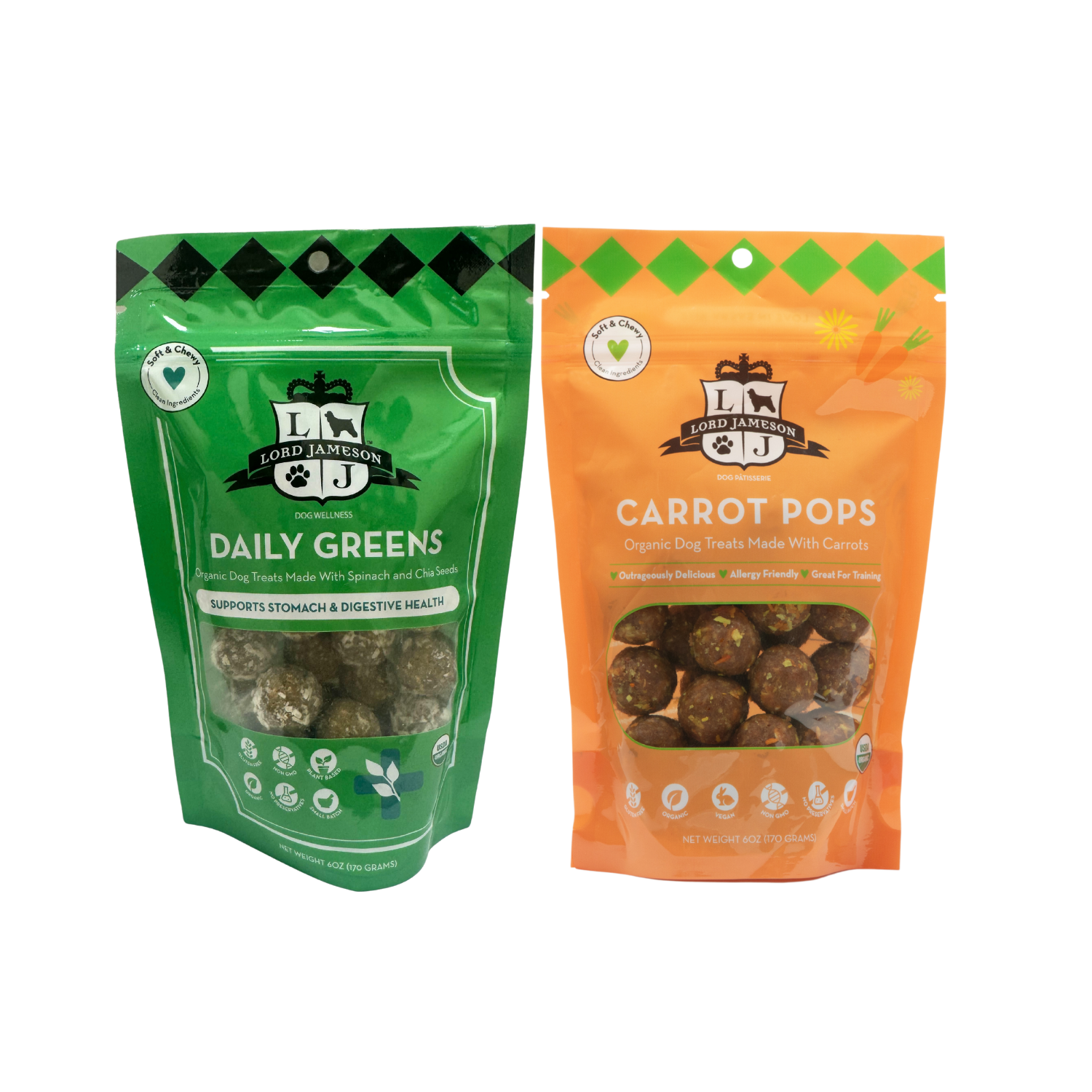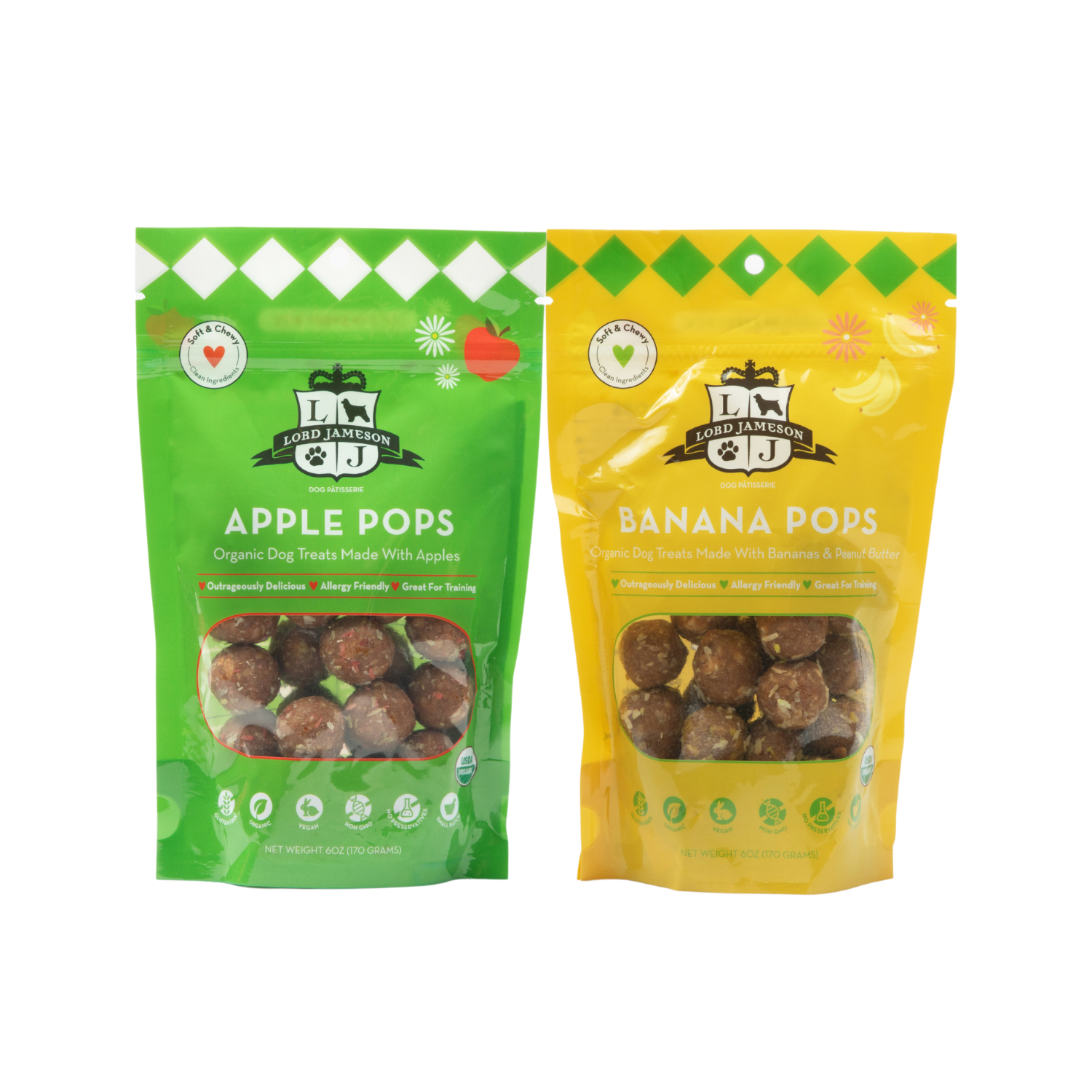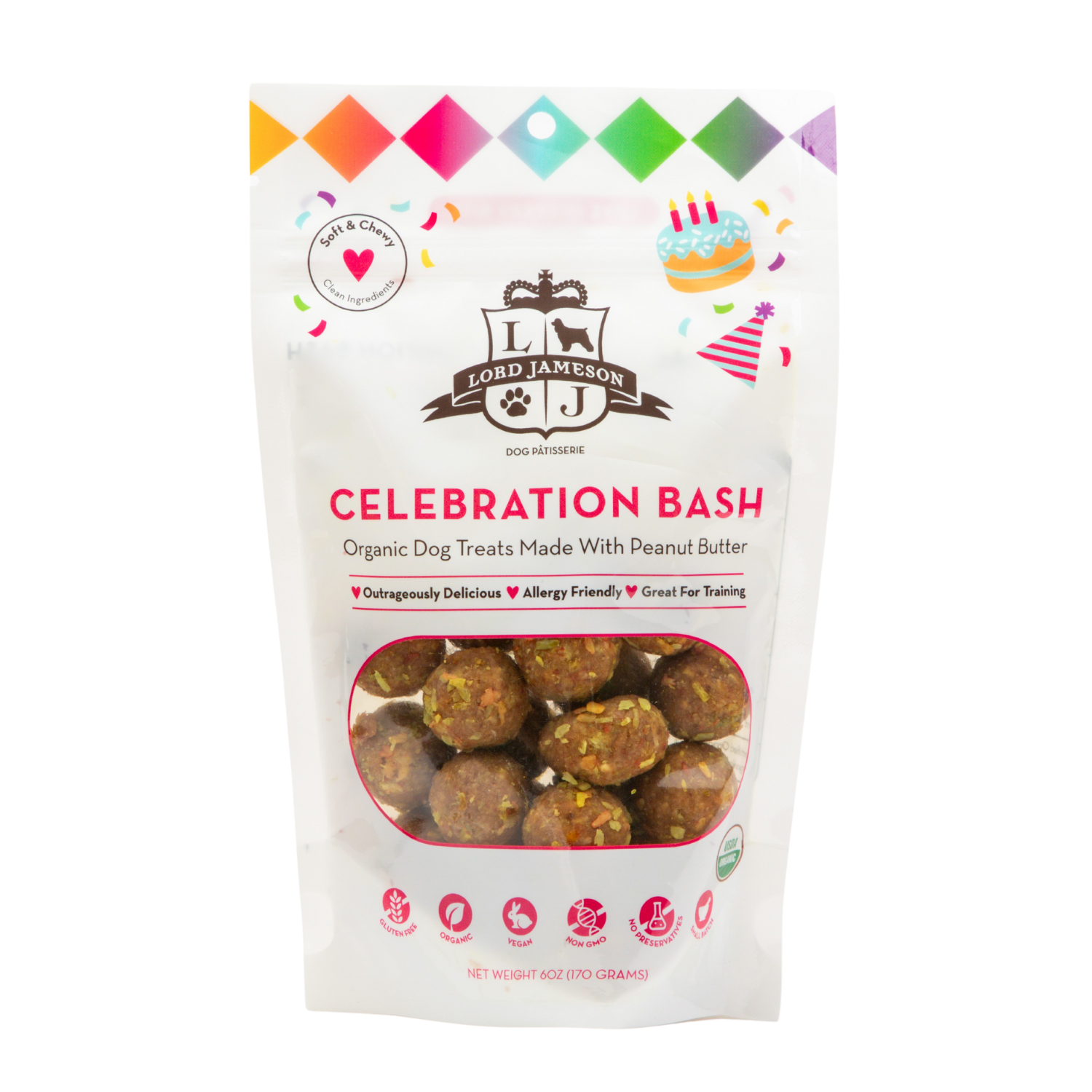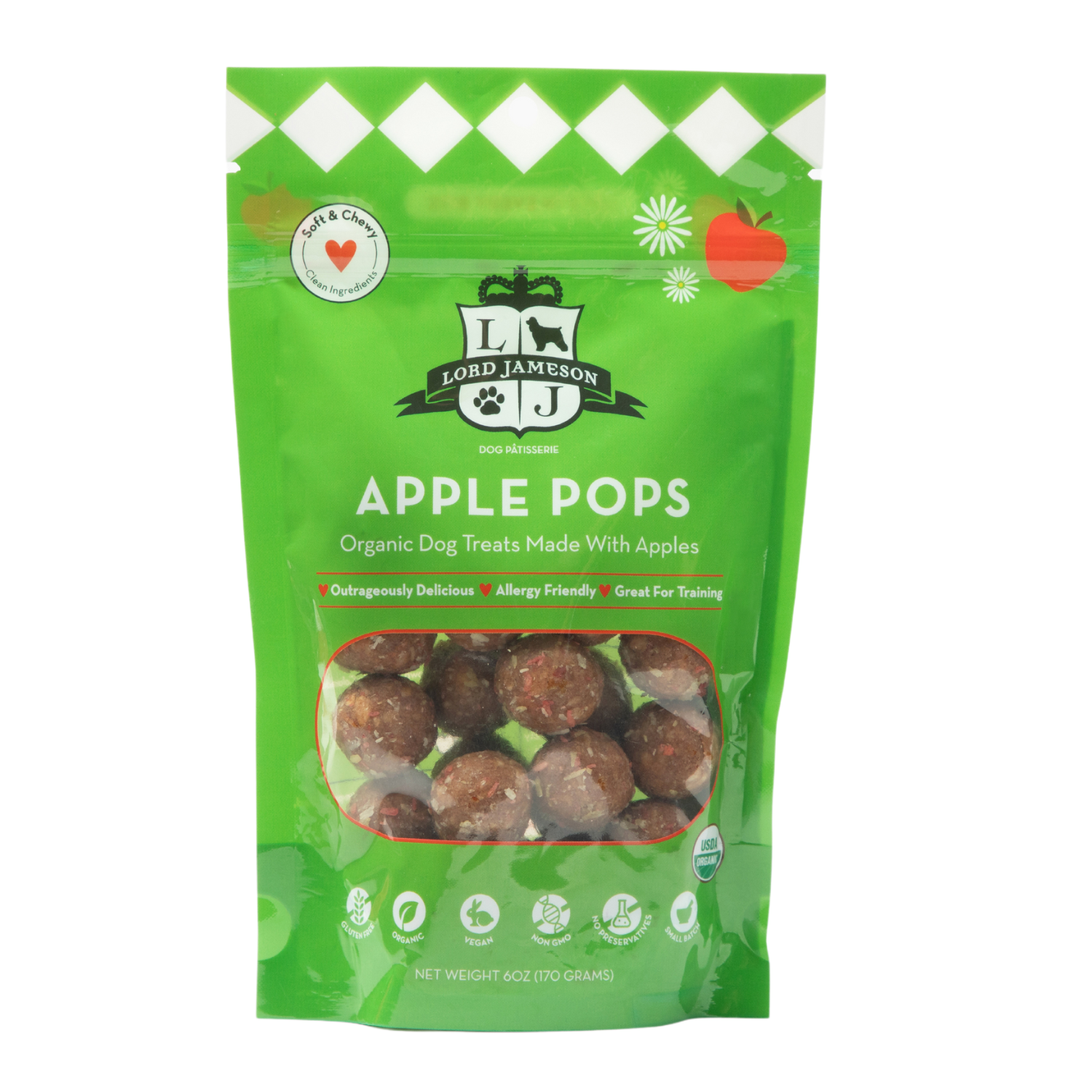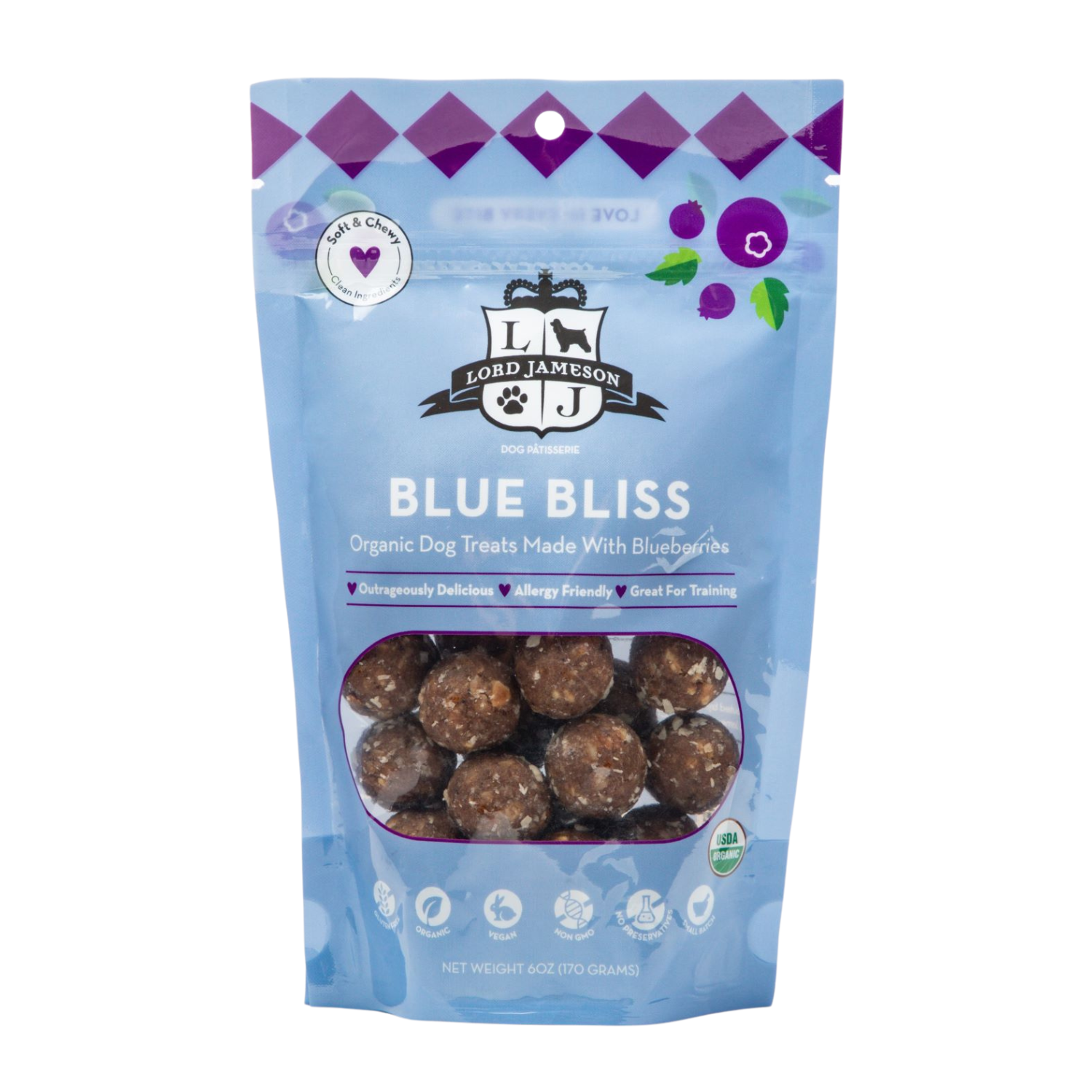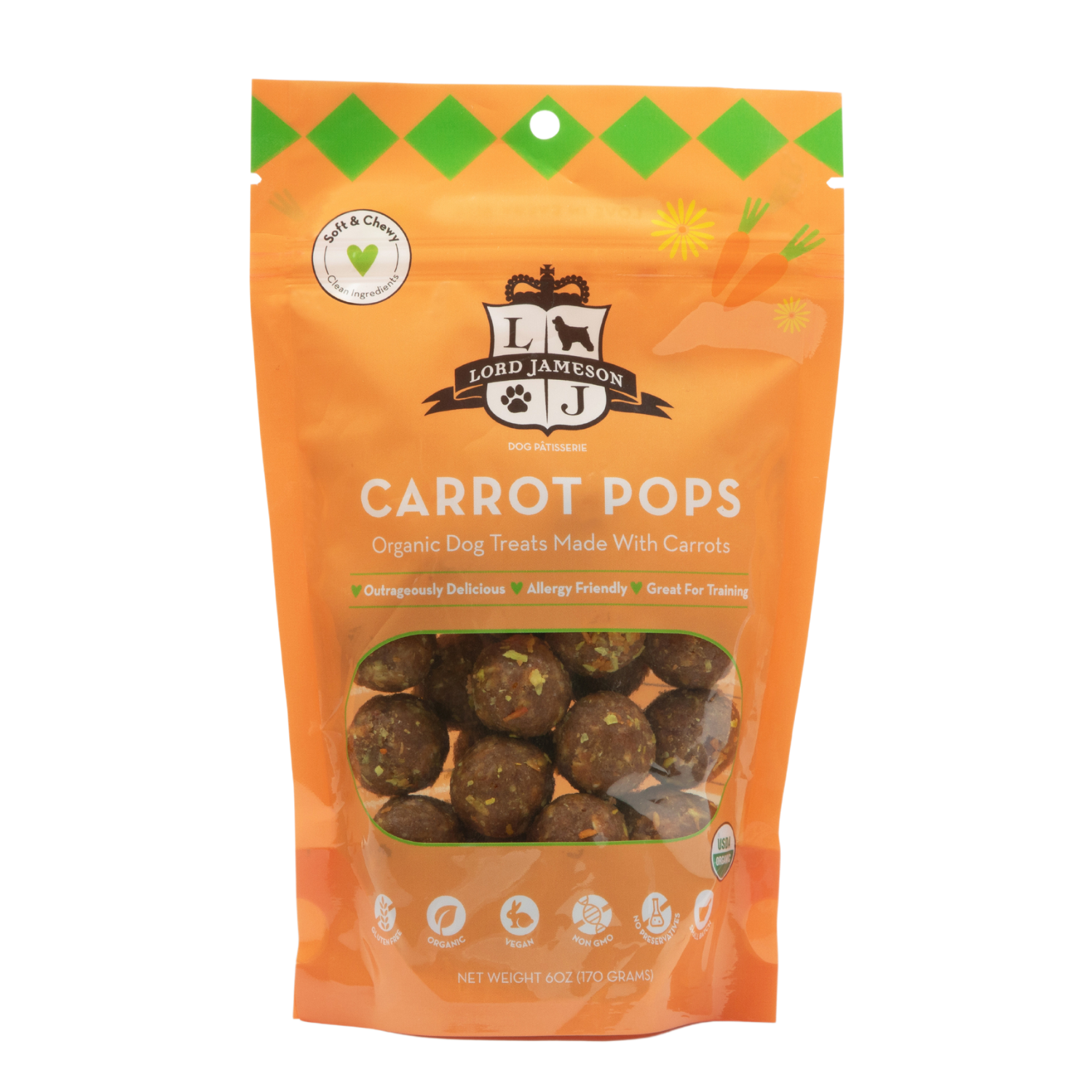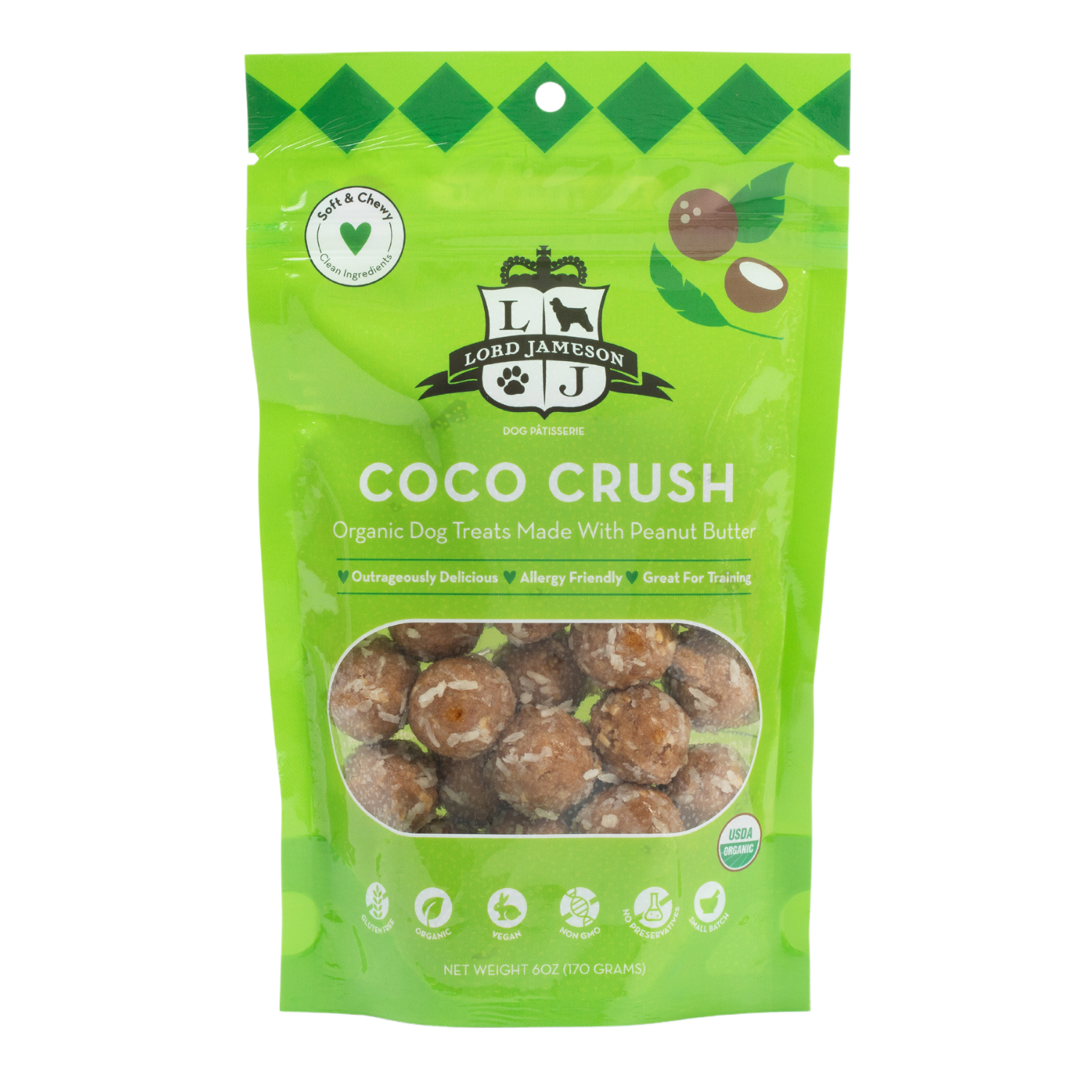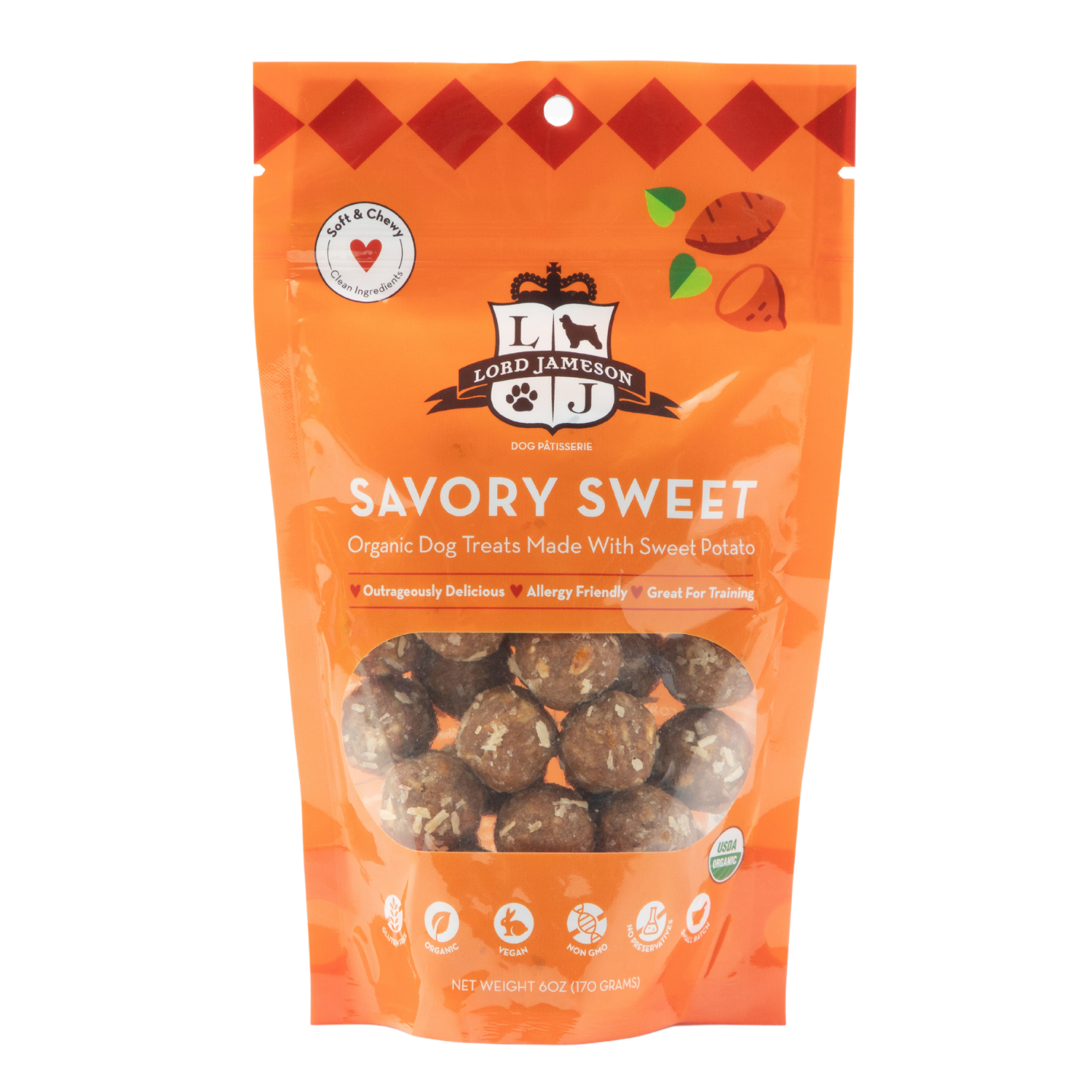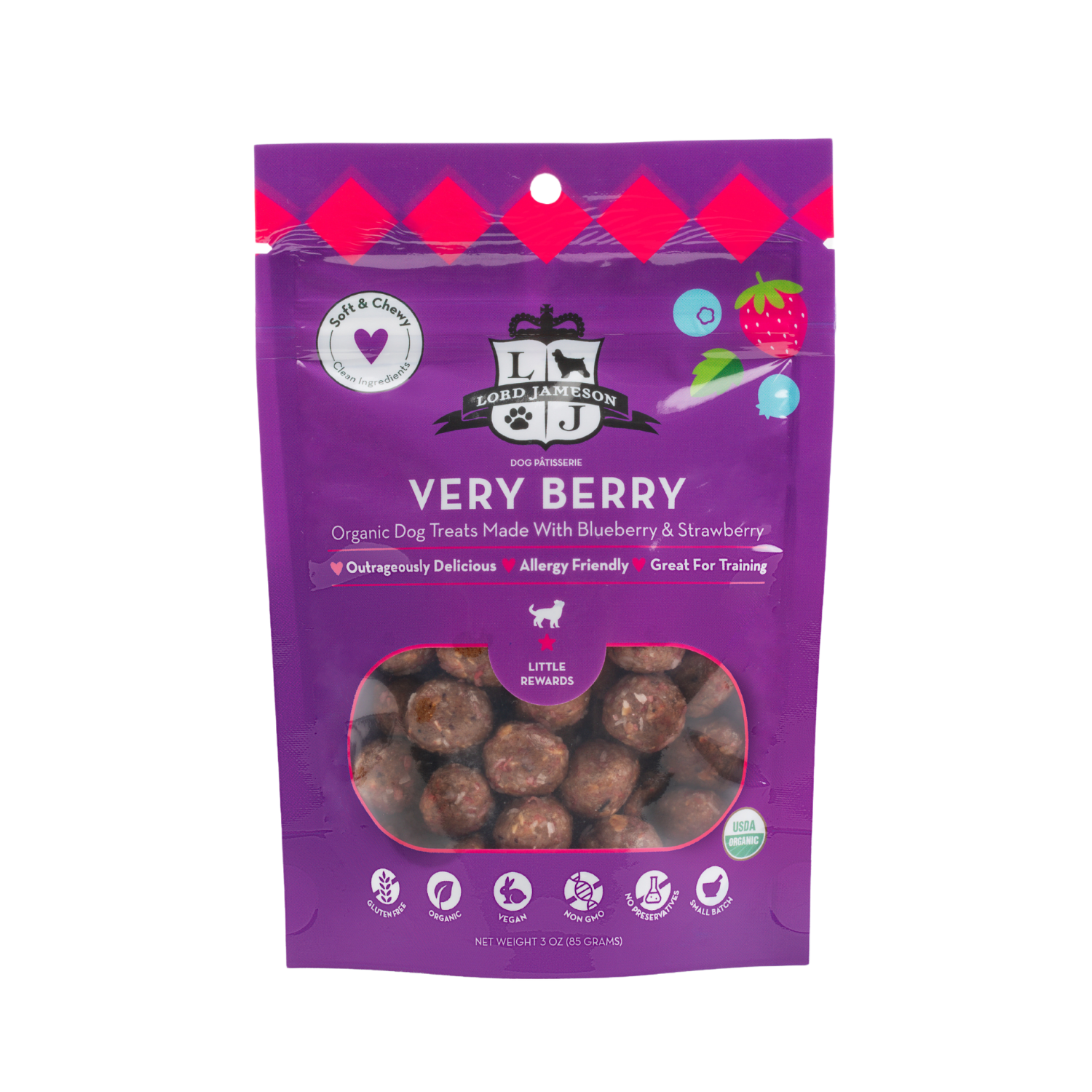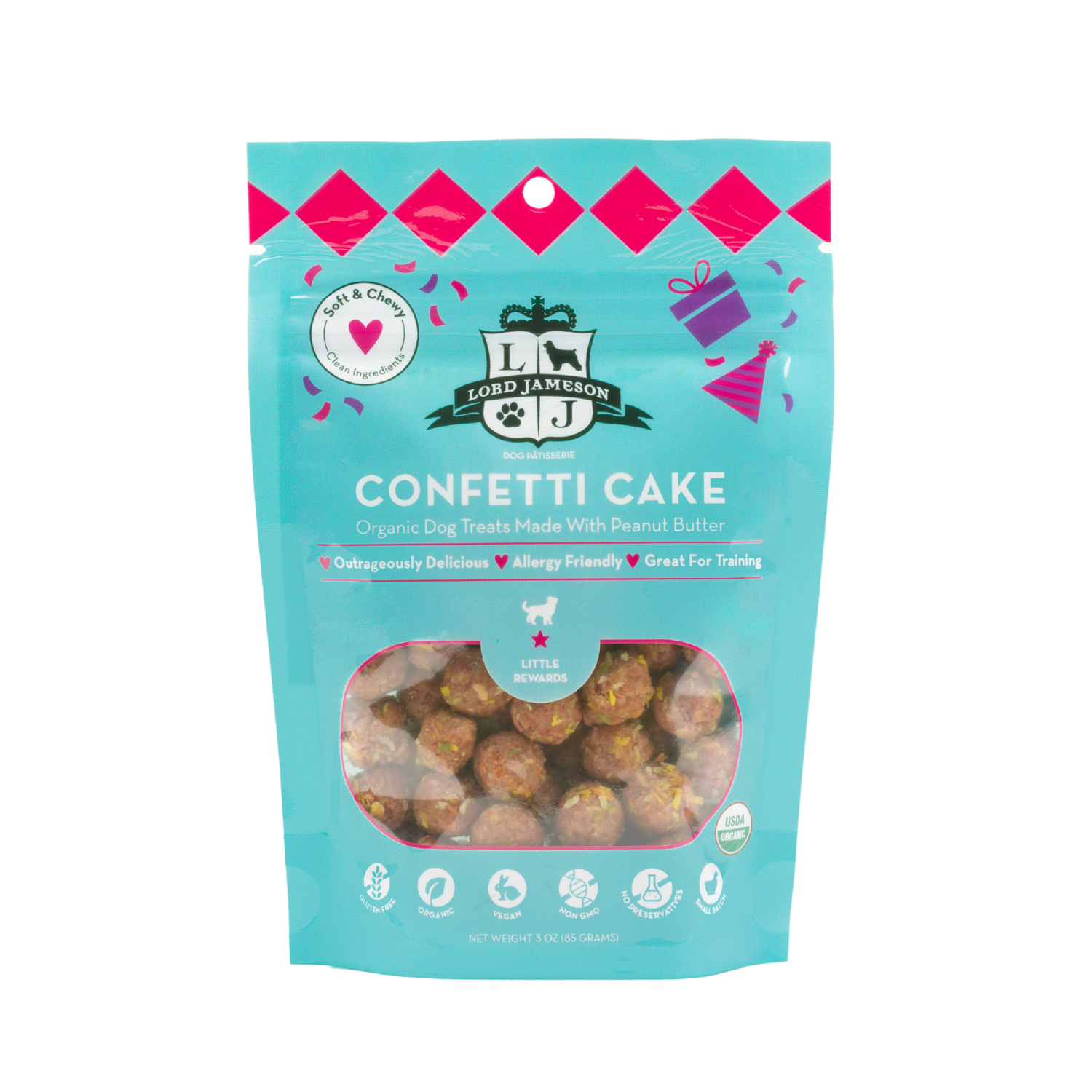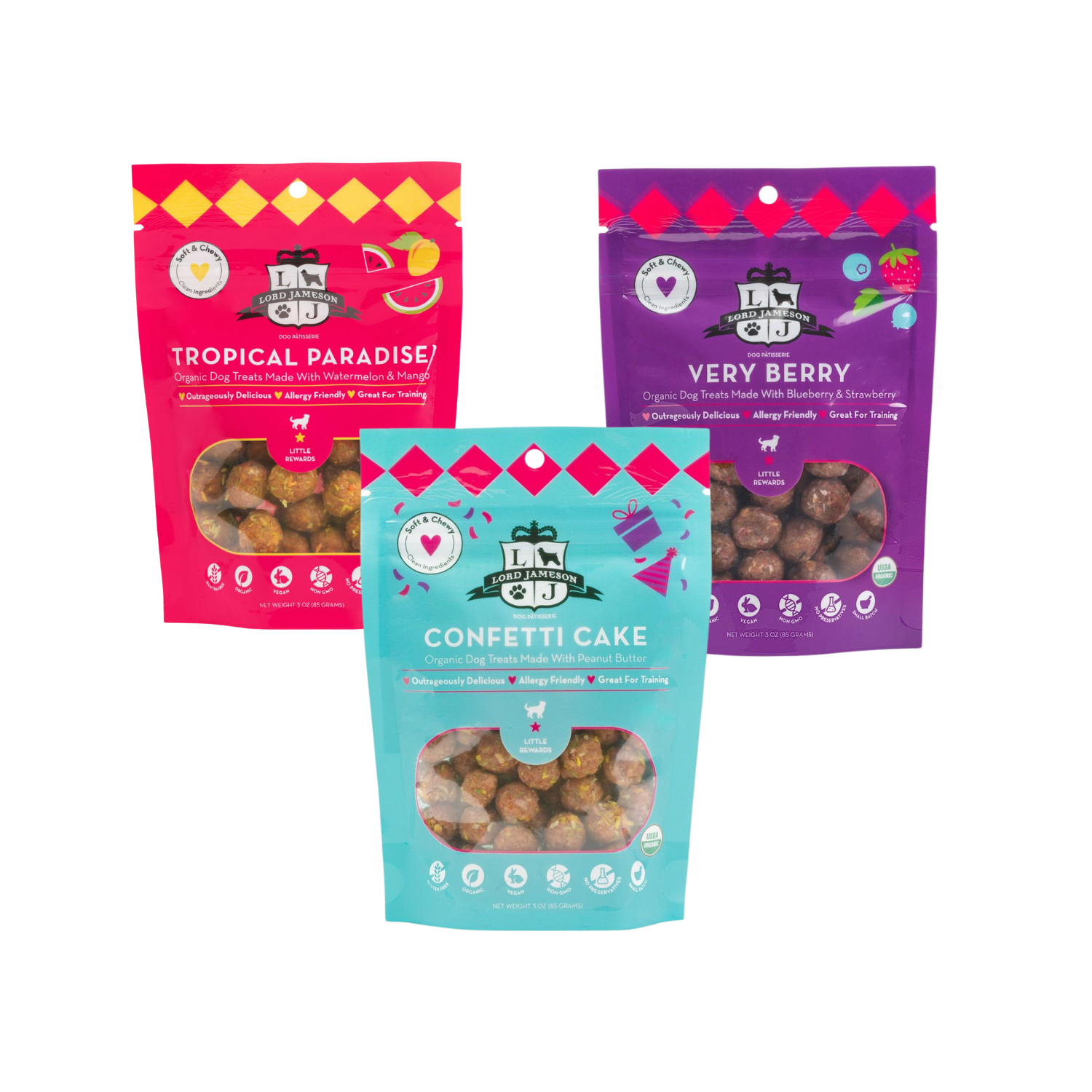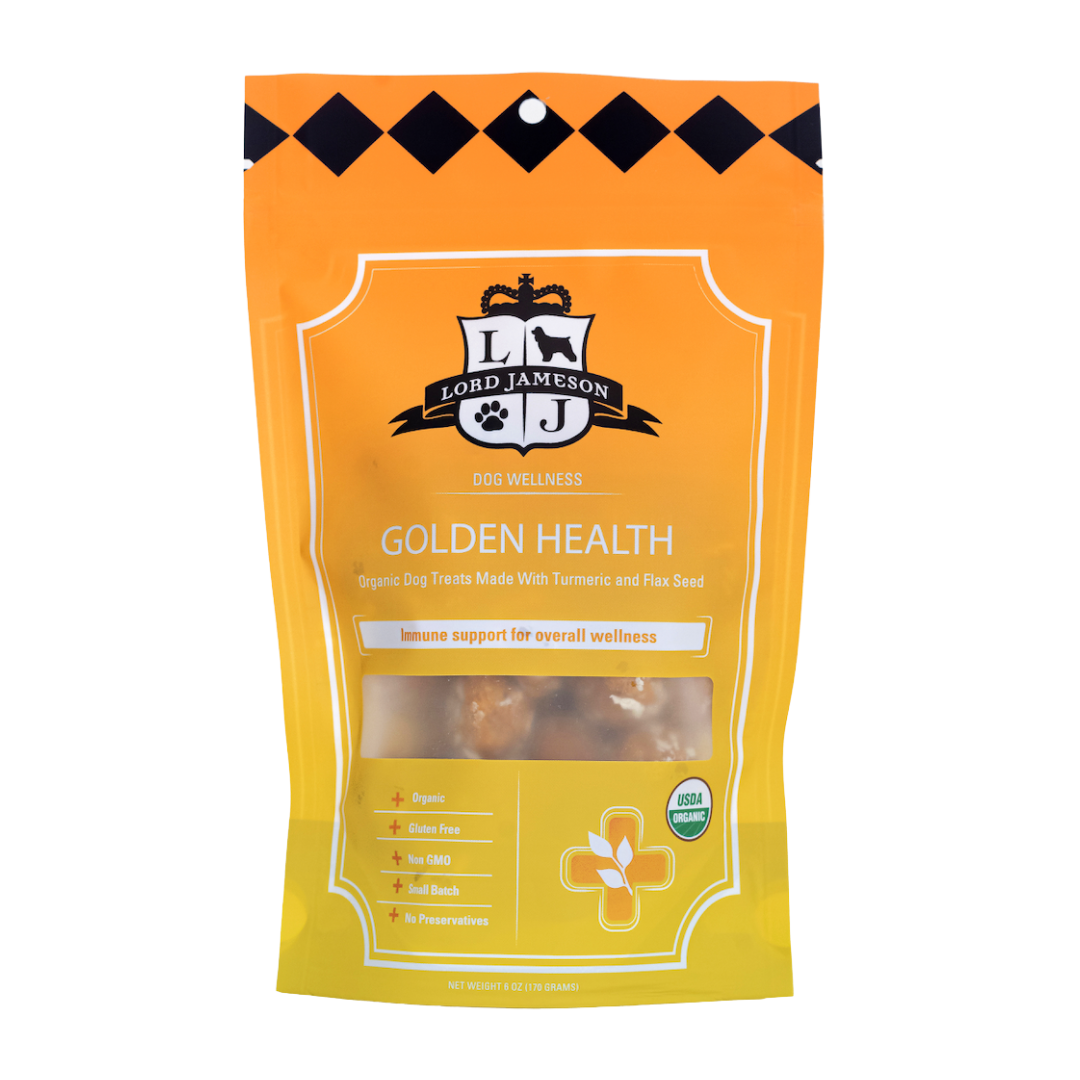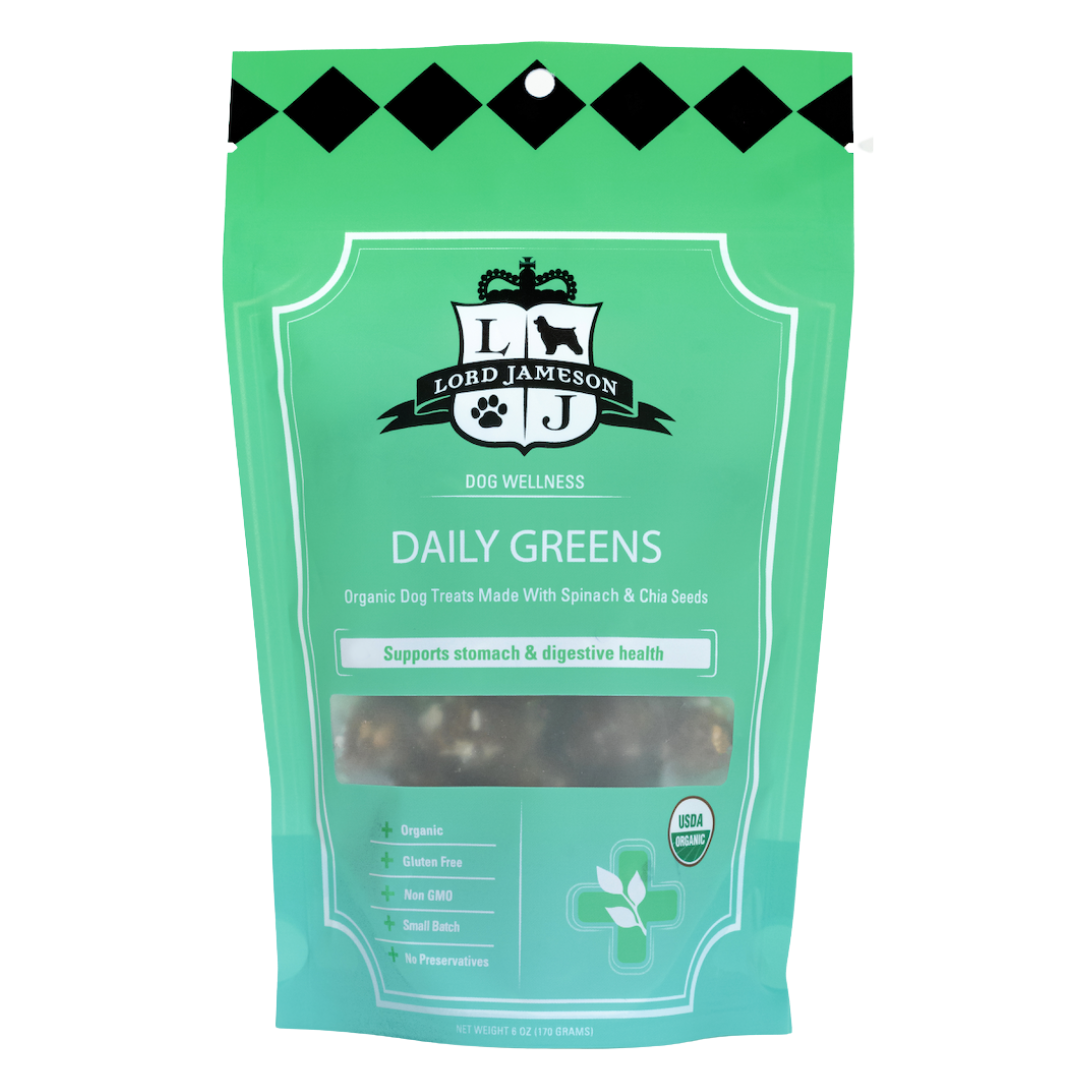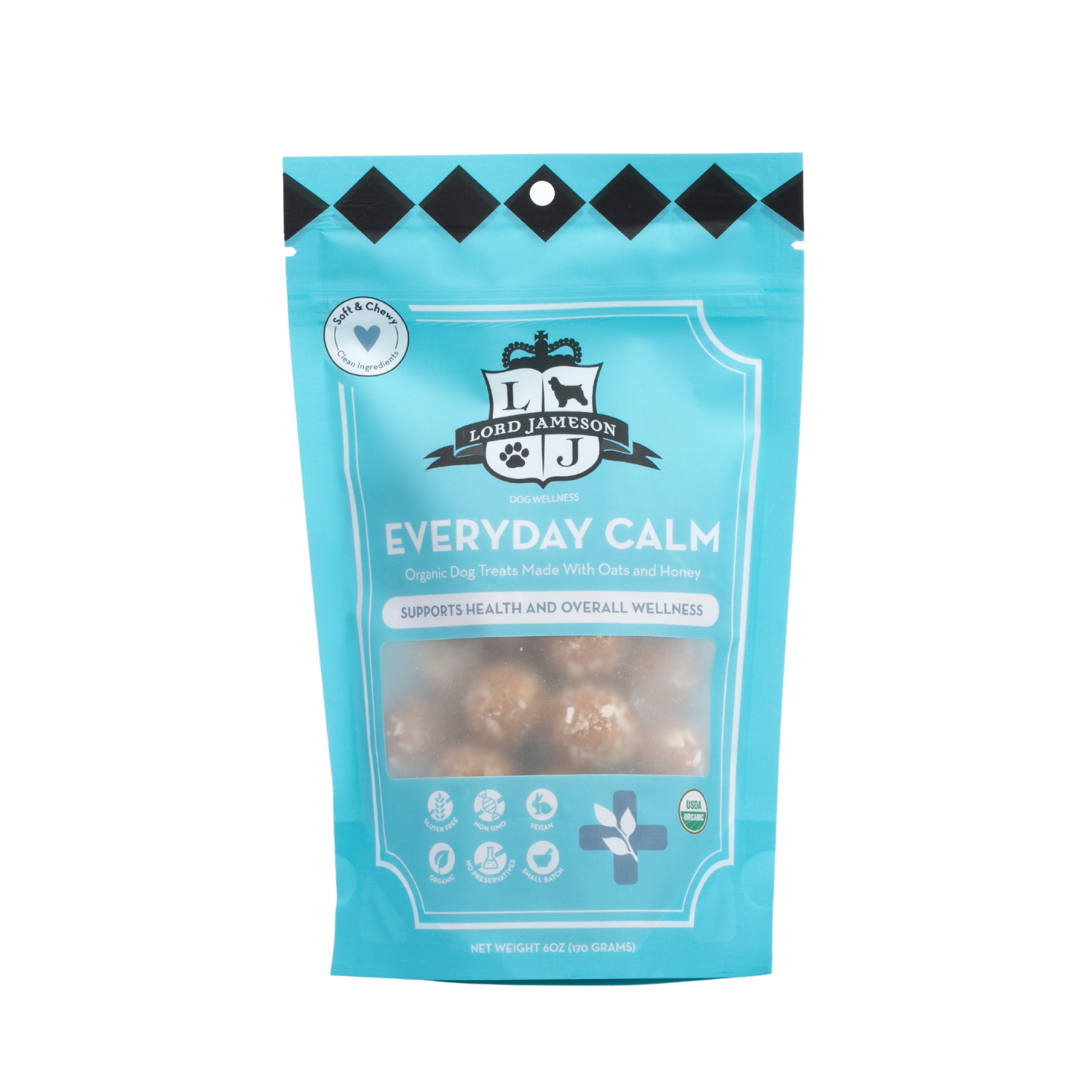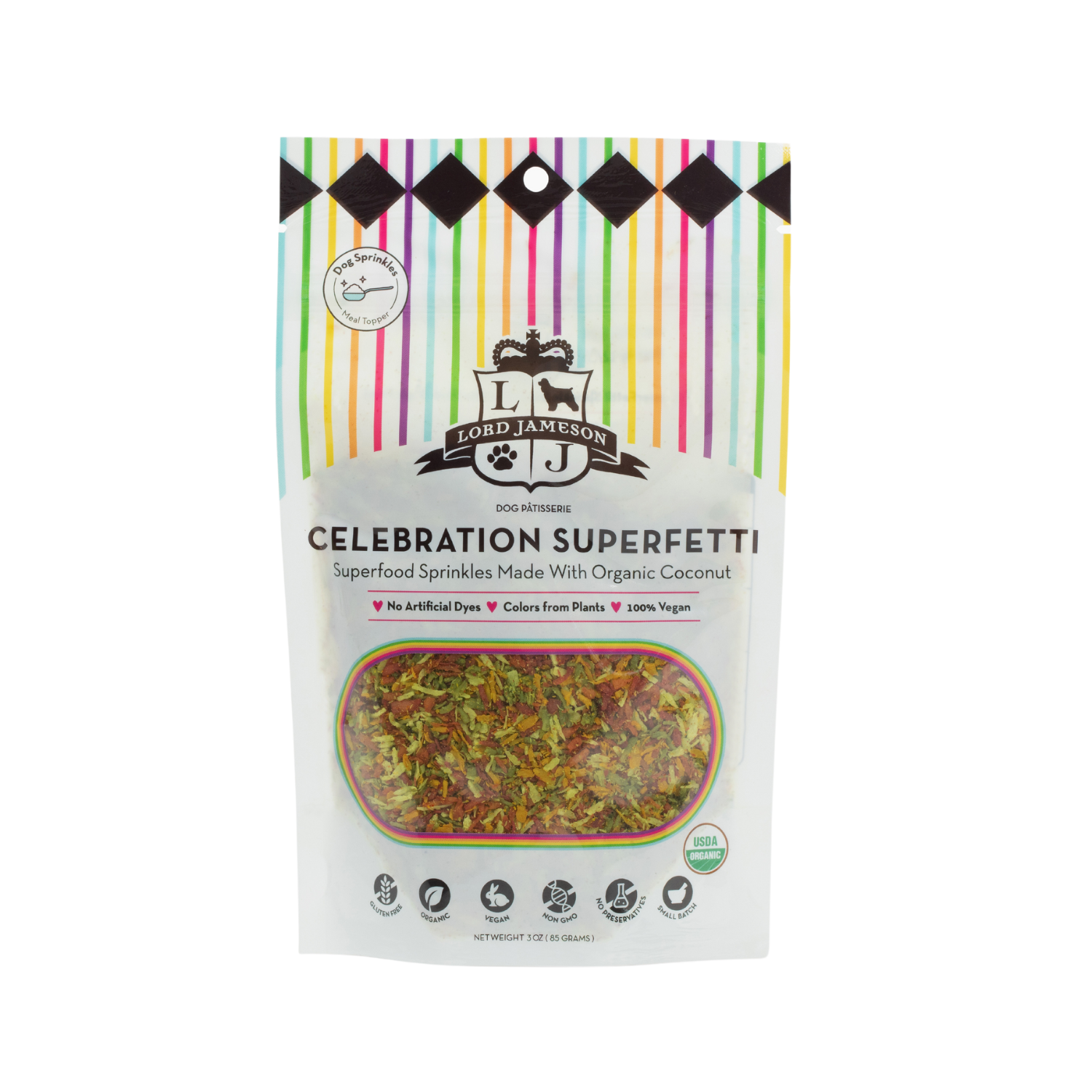
Food Allergies in Dogs: How to Choose the Best Dog Food for Allergies
Food Allergies in Dogs: How to Choose the Best Dog Food for Allergies
The right food can make all the difference in your dog's health and happiness - just as it does for us humans! One of your duties as a pet parent is to pay attention to what your dog is eating, because unfortunately, dogs can also suffer with food allergies. If you have a dog with allergies, it is crucial to choose the right food for them! You want to ensure that you feed your dog the right meals, so neither of you have to worry about them having any allergy attacks. Food allergies in dogs can be a challenge because there are so many different types of dog food available on the market. To help you and your furry friend, we've put together some steps to help you select the best food for a dog with food allergies... So, keep on reading to learn more!
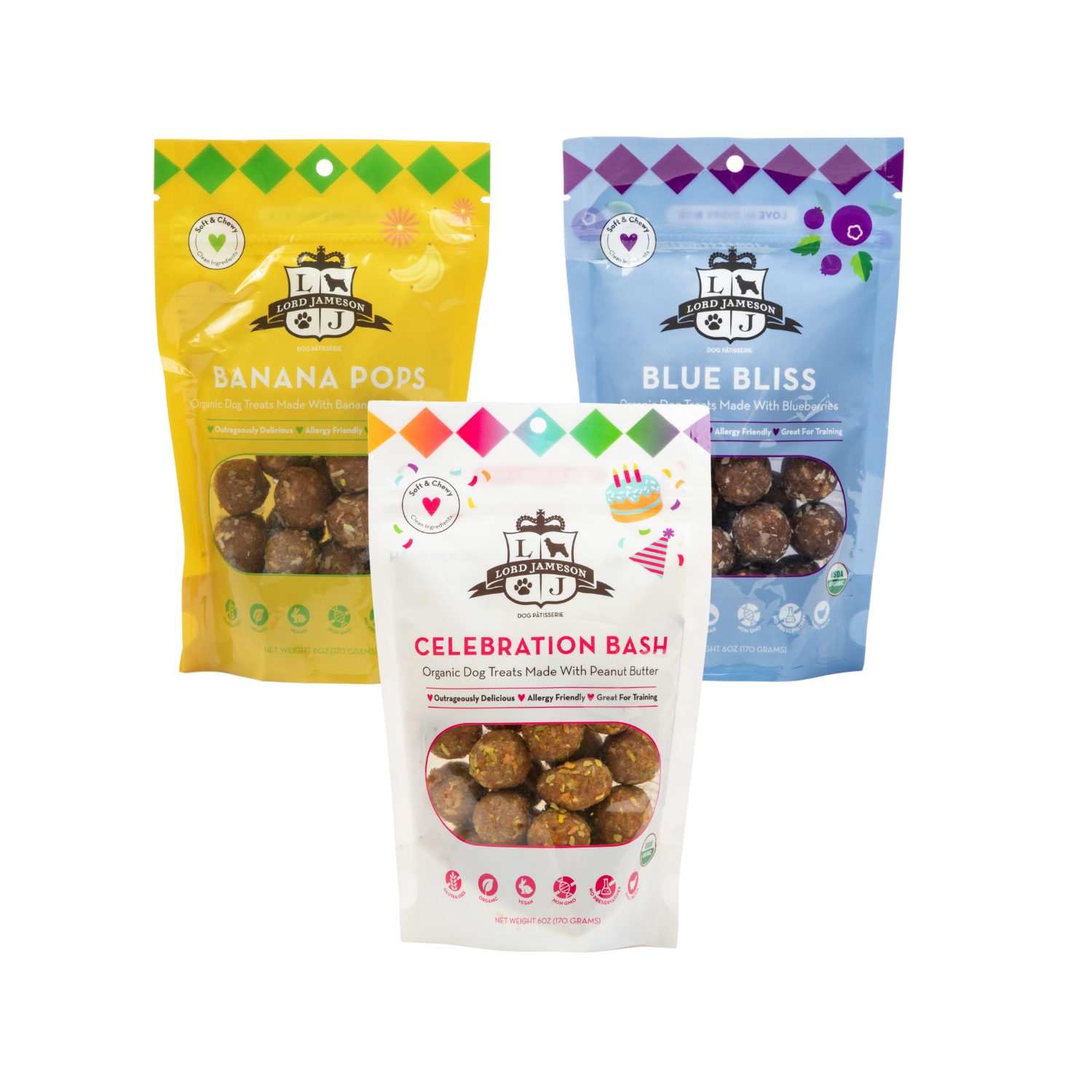
Best Seller Collection Bundle
Top Organic Treats · USDA Certified
Allergies and Dog Food
Allergies and dog food are a common concern for us pet parents. While there is no one-size-fits-all answer to this question, certain foods may be better suited for specific allergies in dogs. To help choose the best food for your dog with allergies, it's important to understand the different types of allergies and their triggers.
Food allergies in dogs can be classified into two main categories: environmental and food. Environmental allergies occur when the allergen (the substance that causes an allergic response) comes into contact with the body through the environment. Food allergies, on the other hand, are caused by a reaction to a particular type of food. It's definitely difficult trying to figure out what they're allergic to, but later in this blog, we'll go over some tips on how to find out what your dog is allergic to. There are several different types of food allergens that can cause reactions in dogs.
Some of the most common allergens that can cause food allergies in dogs include wheat, soy, chicken, and beef. It is important to choose food for your dog that is specifically designed to avoid these allergenic foods. Figuring out what your dog is allergic to can be quite confusing, but thankfully, there are several different types of food allergy tests that can help determine if your dog has a food allergy!
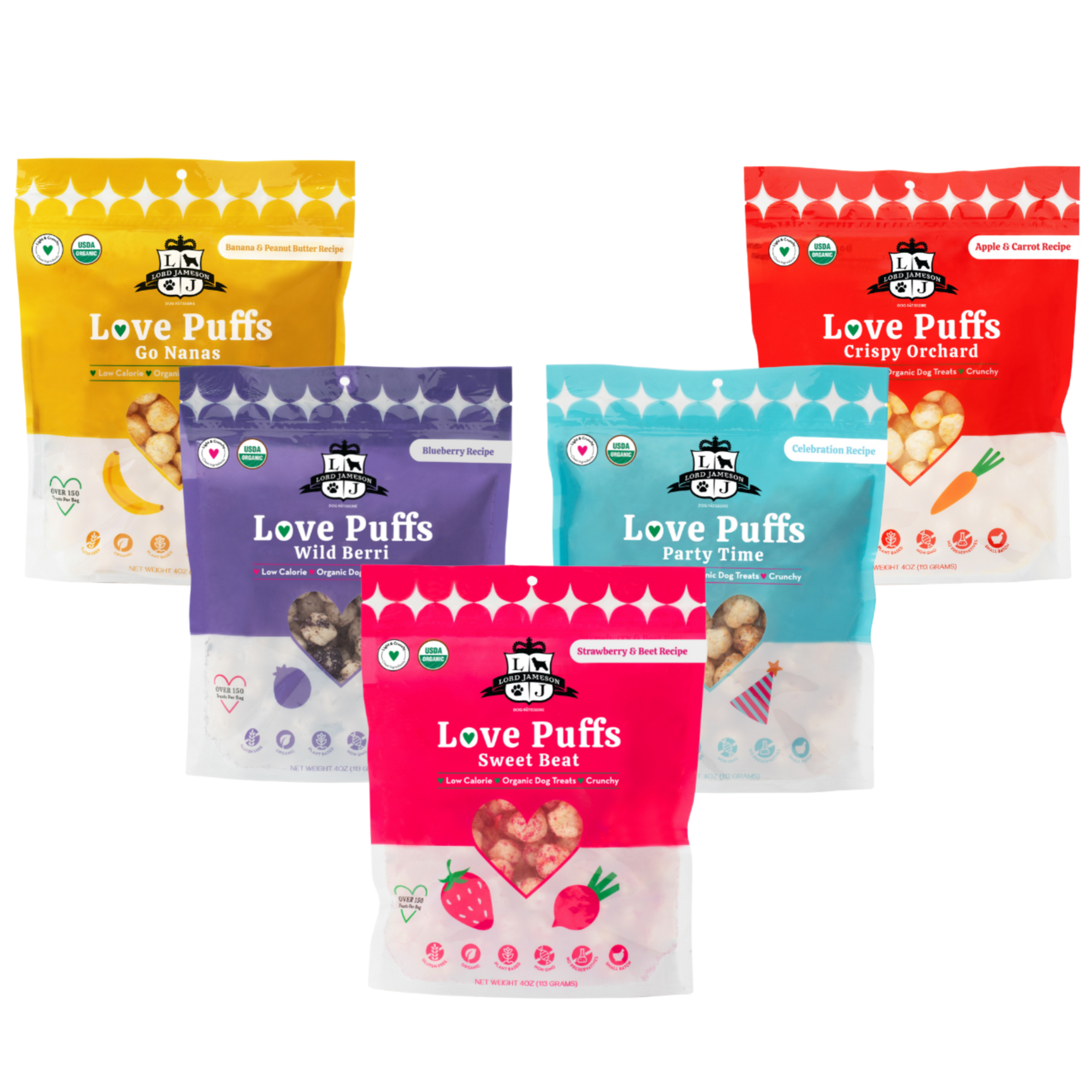
Shop LOVE PUFFS™ Full Collection Bundle
750+ Training Treats, Only 2.4 Calories Each

Signs & Symptoms of Food Allergies in Dogs
Food allergies in dogs are a common problem. They can cause a wide range of signs and symptoms, from mild to life-threatening. If you're concerned that your dog has a food allergy, the first step is to make an appointment to visit their veterinarian. Their vet will be able to help you determine the next steps. There's not always an easy way to tell if your dog has an allergy, but some common signs and symptoms include hives, eczema, swelling of the face or mouth, diarrhea or vomiting, and poor appetite. So, if these symptoms arise and you think your dog may have some sort of food allergy, it's absolutely essential to consult with their veterinarian as soon as possible!
What to Look for in a Dog Food Allergen-Free Diet
When choosing a dog food that is allergen-free, it's important to consider a variety of factors. Consider checking the ingredient list. Allergens can be found in many different ingredients, so it is important to choose dog food that does not include any allergens. Another important factor to consider when choosing an allergen-free diet for your dog is the quality of the ingredients. Make sure that the food contains high-quality proteins and vitamins, as these are essential for your dog's health. Finally, be sure to read reviews before making a purchase, as this will help you find the best allergen-free food for your dog. There are so many options available, so always do your research! Check the ingredients on the back of the food before purchasing. If you can pronounce each ingredient, that's a huge plus! You don't want one that is full of toxins and preservatives. We always recommend organic dog food if you're looking to start your furry friend on a dog food allergen-free diet!
How to Feed Your Allergic Dog a Special Diet
1. Start with a basic diet that includes meat, bones, and fresh vegetables.
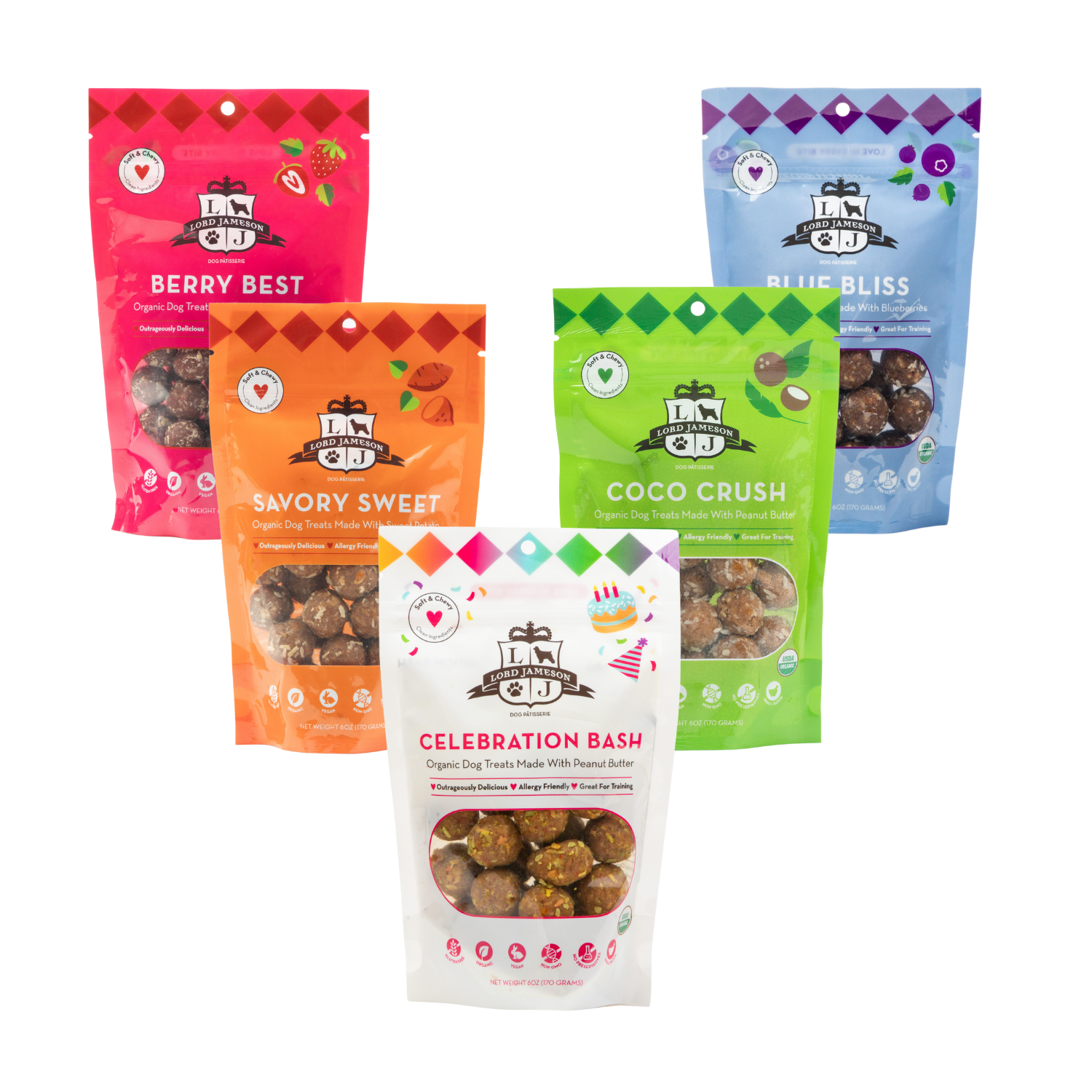
Everyday Collection Bundle
Complete Pack with 5 Flavors, Natural Colors Only
2. Add specific foods that your dog is allergic to or has food sensitivities to.
3. Monitor your dog's reactions and adjust the diet accordingly.
Food allergies in dogs can be a real problem, as the dog may suffer from an allergic reaction. This can lead to a range of problems, from minor skin rashes to more serious conditions like anaphylaxis. As stated on Mayo Clinic, "anaphylaxis is a severe, potentially life-threatening allergic reaction. It can occur within seconds or minutes of exposure to something you're allergic to, such as peanuts or bee stings."
There are some general tips that can help you feed your dog a special diet that avoids allergens. First and foremost, make sure that you are feeding your dog only food that is specifically designed for dogs with food allergies. This means avoiding processed foods - which we've always recommended anyway. Organic dog food is a great route to try. (Plus, if you're looking for some organic dog treats, ours from LORD JAMESON® are the perfect snack!)
Food allergies are becoming more common in dogs, and the best way to prevent them is by choosing a food that is free of processed foods and foods that contain allergens. To avoid food allergies in your dog, it is important to read the ingredients list and make sure that there are no allergens included. The list should be easy to follow, understand, and include healthy ingredients!

What to Do If Your Dog Has an Allergy Attack
Having an allergy attack could be scary for both you and your dog. So, it's important to know how to prepare for when your dog's allergies are playing up. Here are our top 3 tips on what to do if your dog has an allergy attack.
1. Keep your dog calm - As we mentioned, it could be a scary thing when your dog has an allergy attack - especially if it's the first time. Don't scold or try to force them to eat something that they are allergic to. Instead, take note of what triggered the allergy attack and educate yourself on which foods contain this ingredient so you could avoid buying foods with it again.
2. Give them plenty of water and a safe place to rest - One of the signs of an allergy attack is heavy panting and vomiting. If your dog starts to do this during an allergy attack, they may be in need of emergency care. Call your vet for an immediate appointment.
3. Call your veterinarian as soon as possible - As we just said, calling your dog's vet is the best thing for you to do! They are trained to help dogs in situations like allergy attacks. Considering that some allergic reactions can be life-threatening, it's always the safest route to bring your dog into the vet's office as they'll know exactly what to do to help your furry friend.
Our Recommendation for Food for Dogs Having Food Allergies
Dogs can be sensitive to many different types of food. Though they are fond of tasty and delicious food (like we all are), it’s best to not feed our dogs with food that can harm them. We recommend feeding your canine friend, low processed foods that are free of any artificial colors, flavors, and preservatives. At LORD JAMESON®, we offer a range of healthy dog treats that do not cause any allergic reactions! We have several mouth-watering flavors that include cranberries, blueberries, peanut butter, coconuts, and so much more! To explore our range of delicious and healthy dog treats visit our shop section.
Conclusion of How to Choose the Best Dog Food for Allergies
Those were some tips and advice on what to do when your dog has an allergy attack. By following the above steps, you can choose the best dog food for your allergic dog. At the end of the day, you're their parent (or should we say pawrent) - so it's your duty to ensure that they stay happy and healthy! Your dog's veterinarian is always there if you have any questions. Good luck and don't forget to shop our organic dog treats at LORD JAMESON®! To stay updated on all of our treats and flavors, follow us on Instagram @LordJameson! Thanks for reading!


